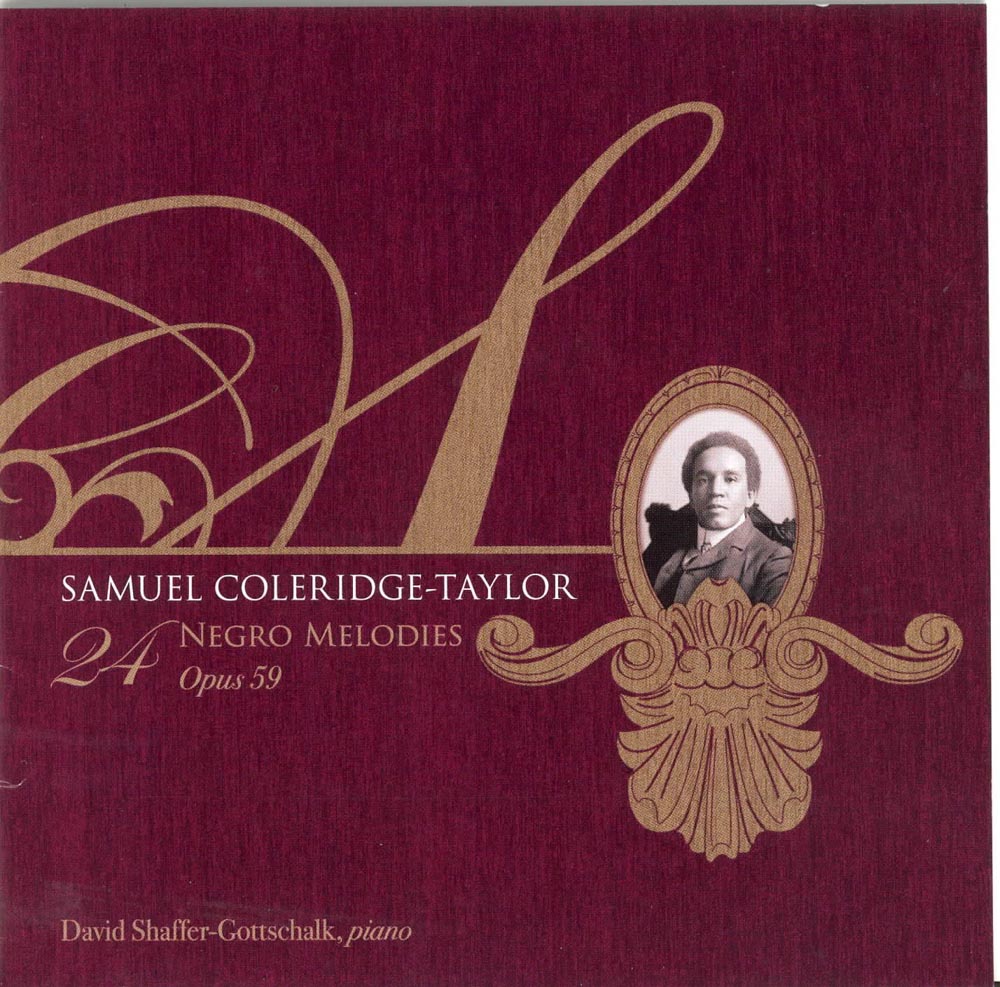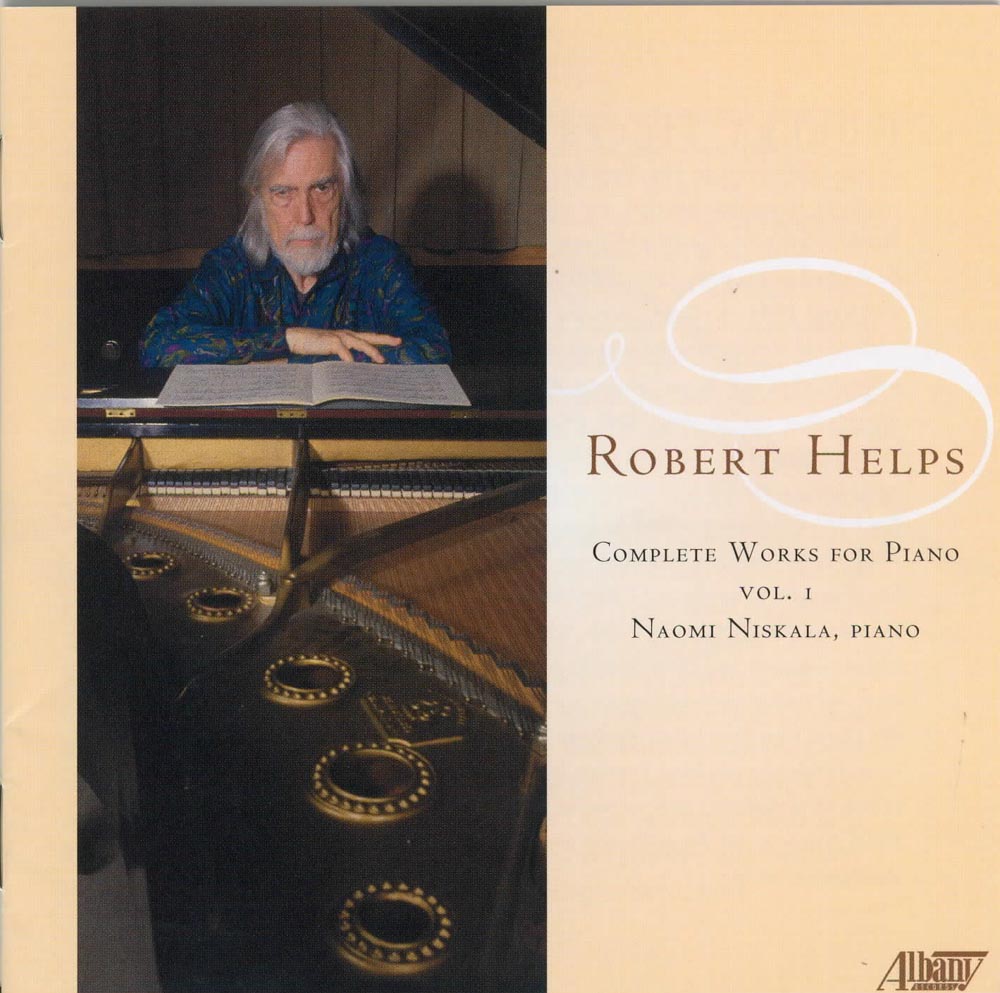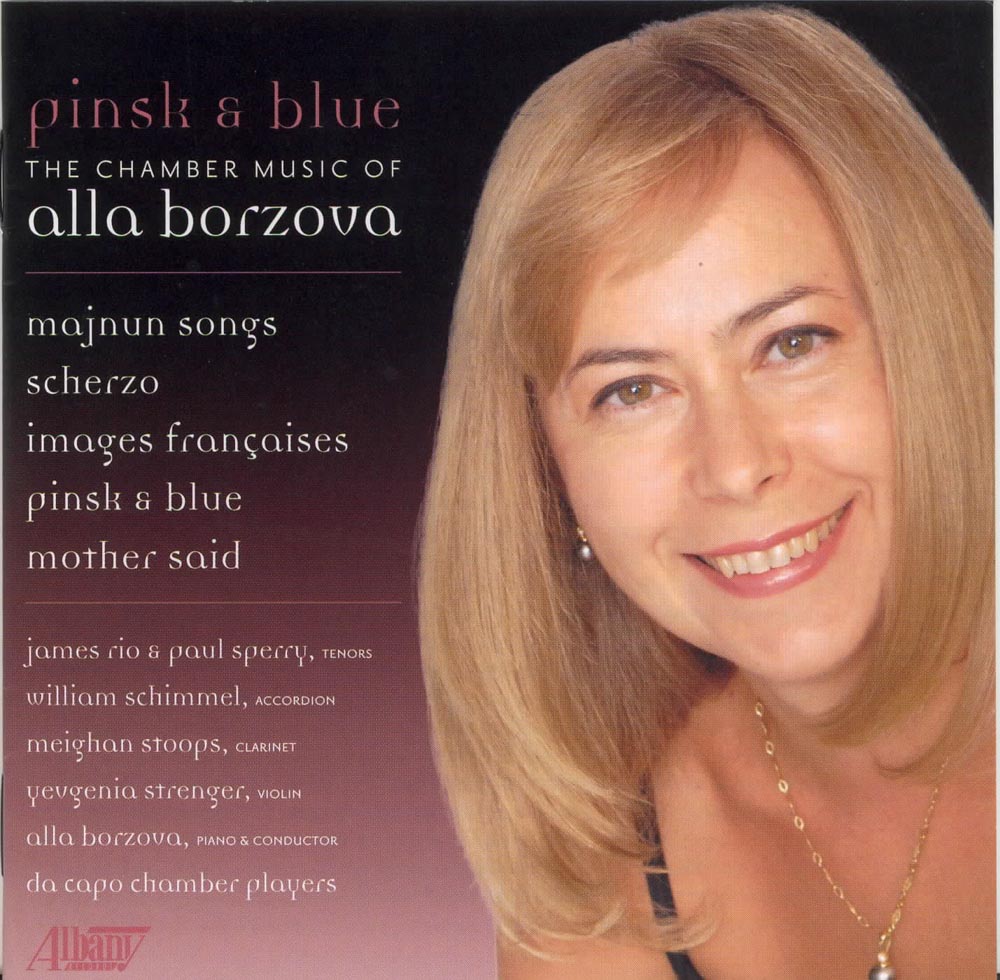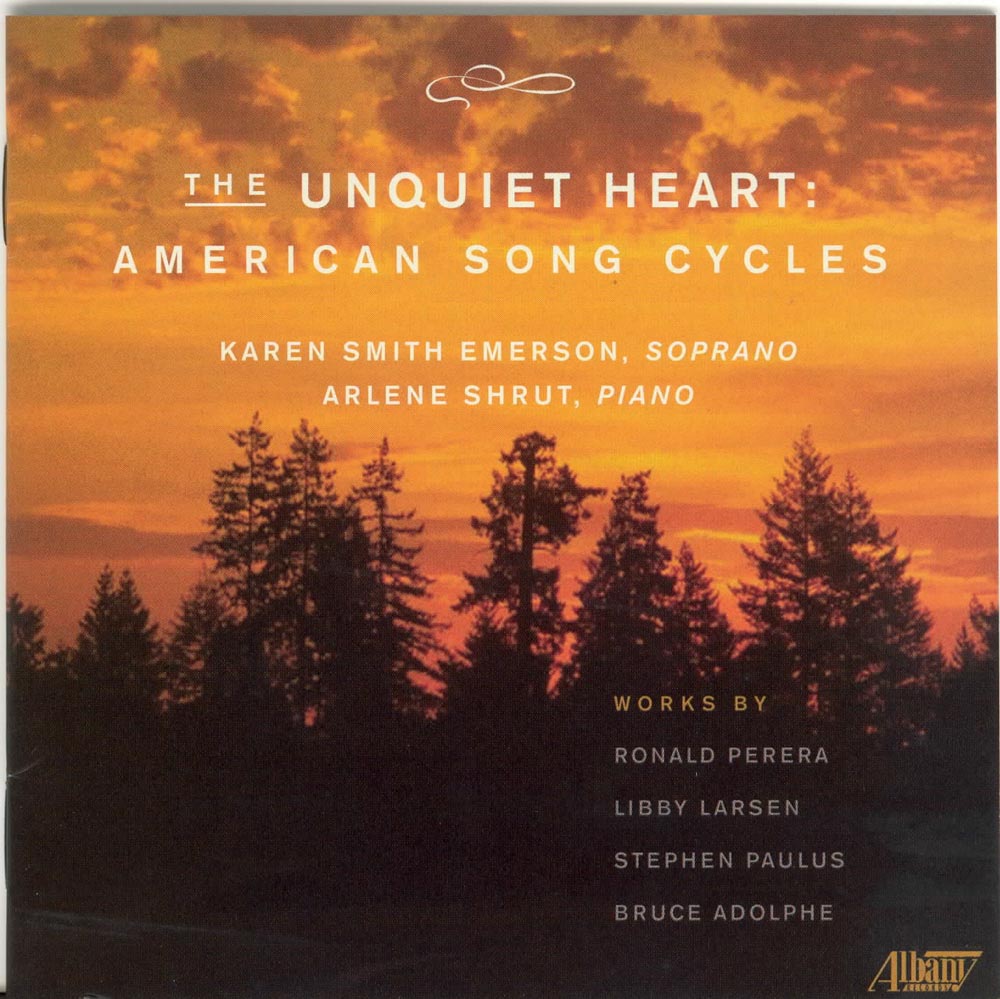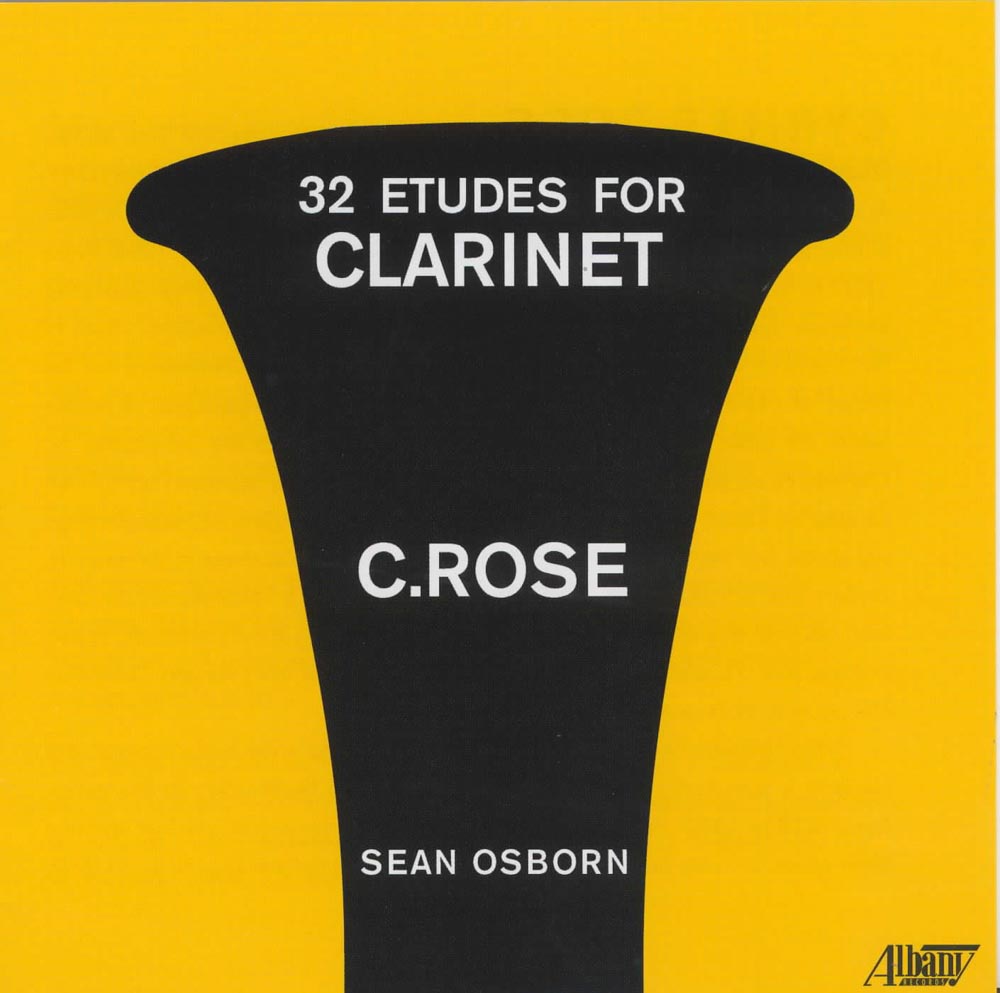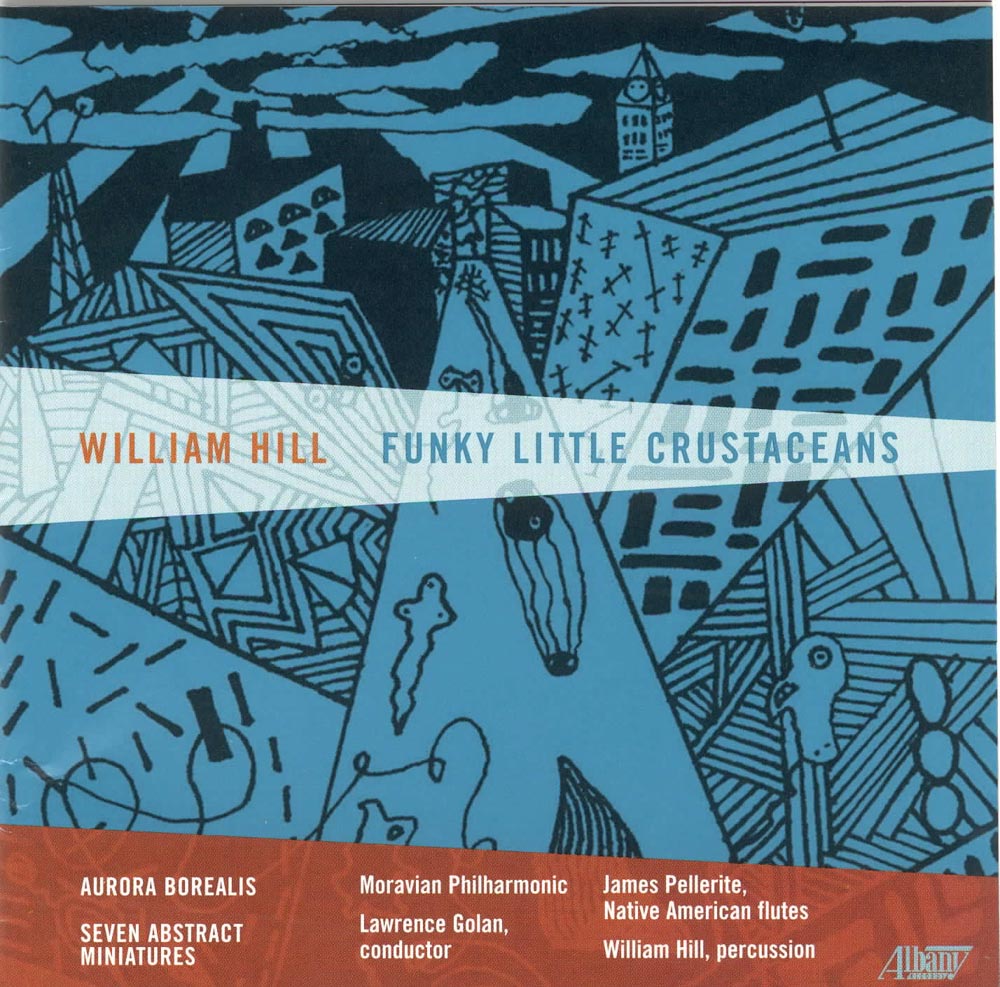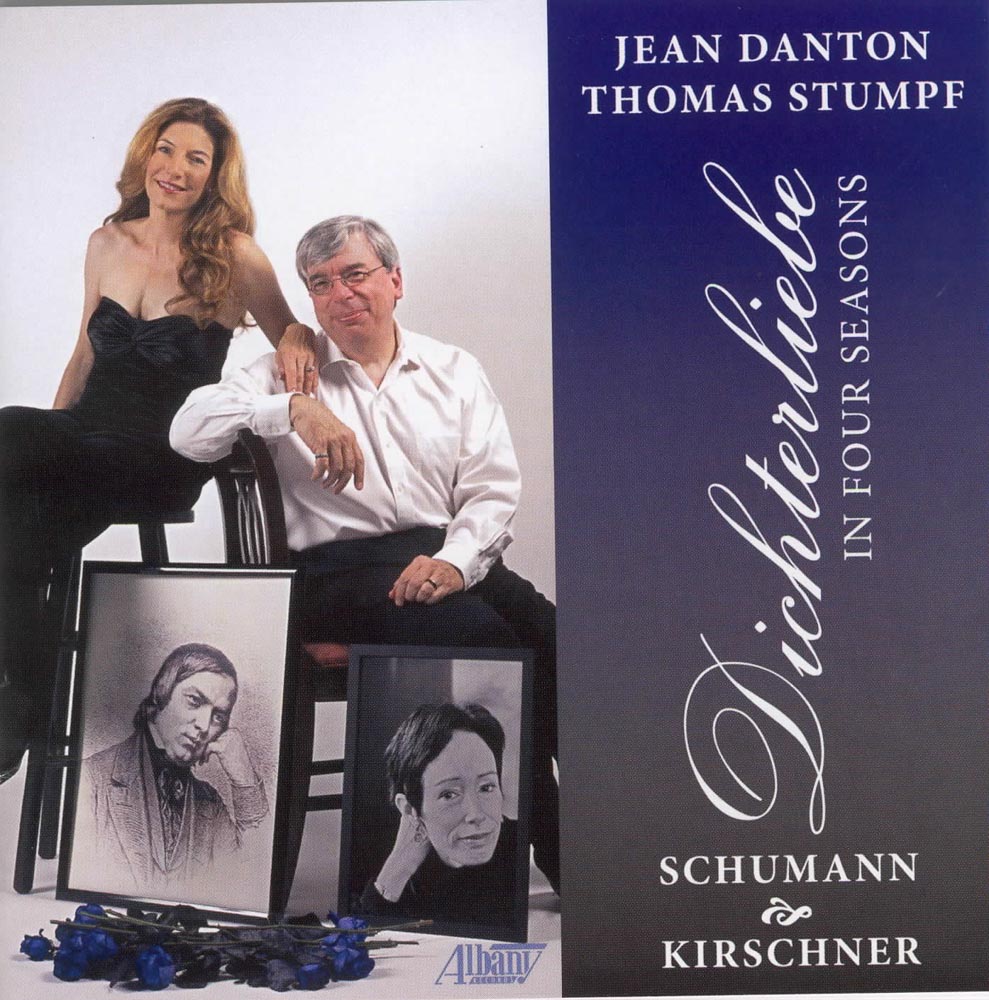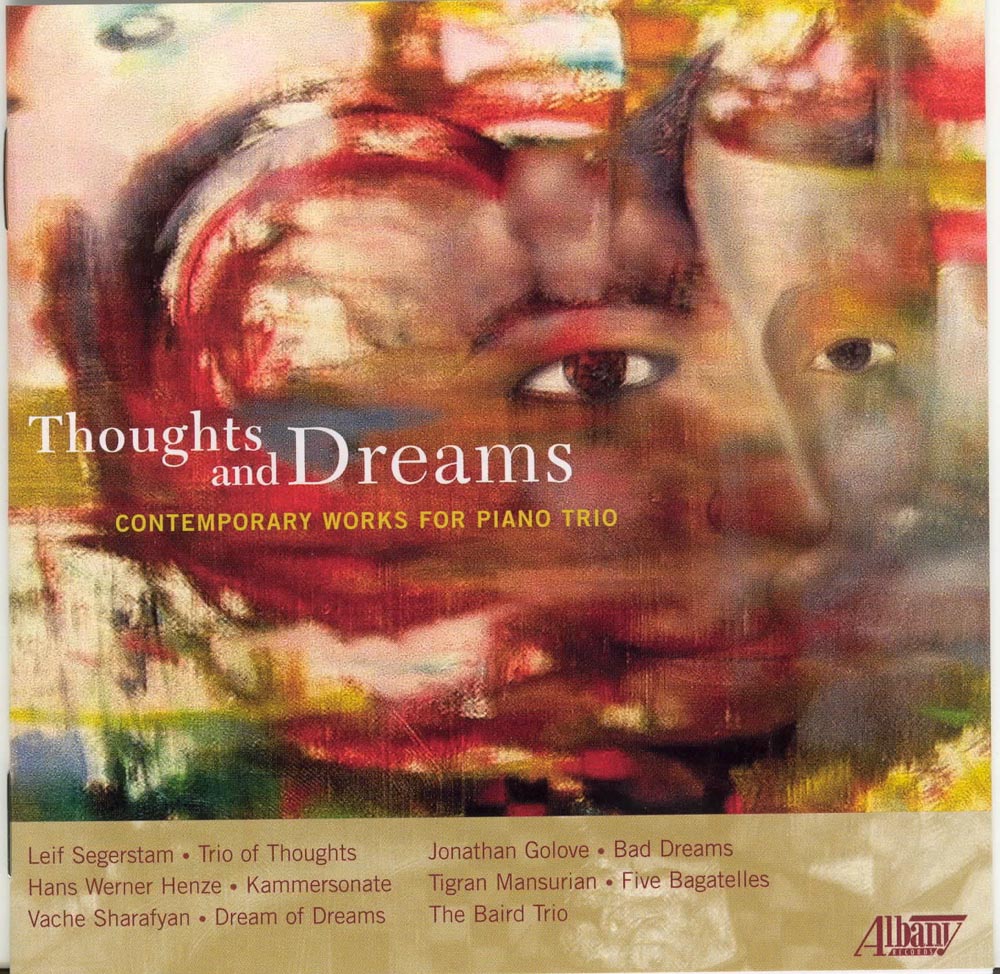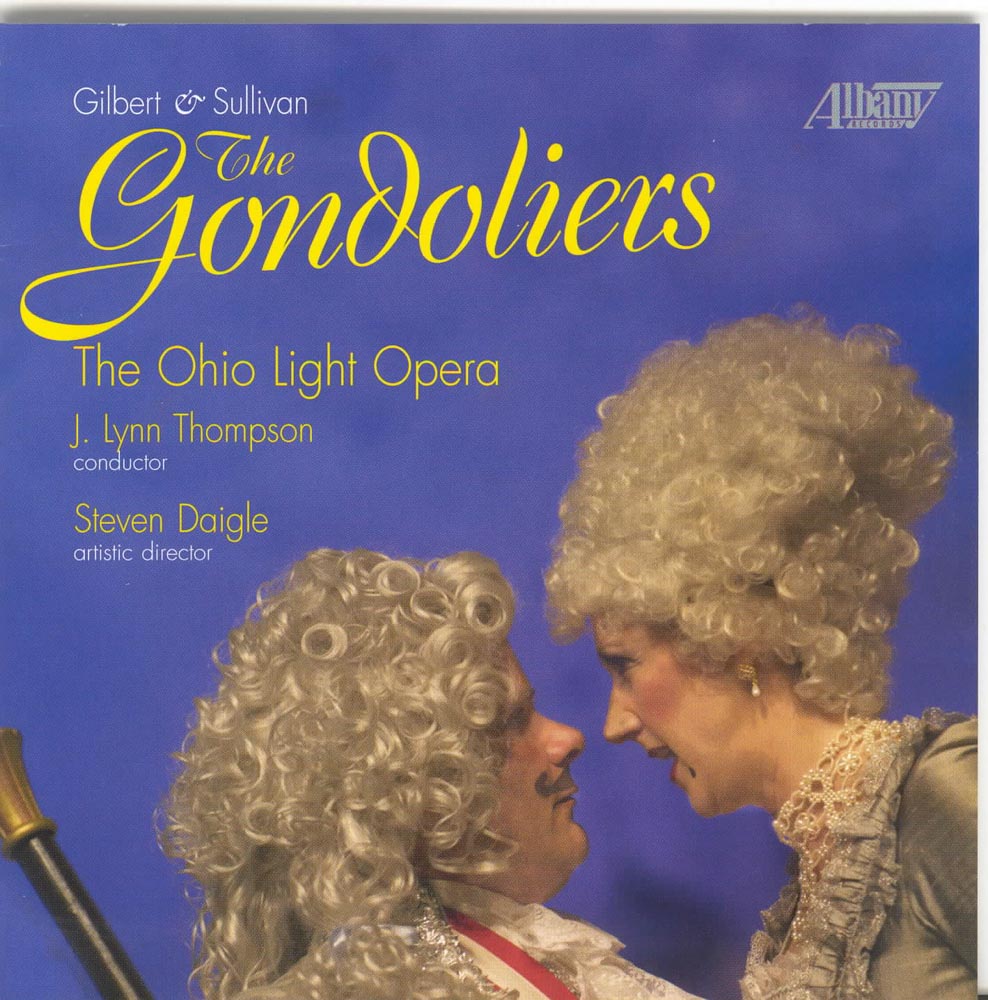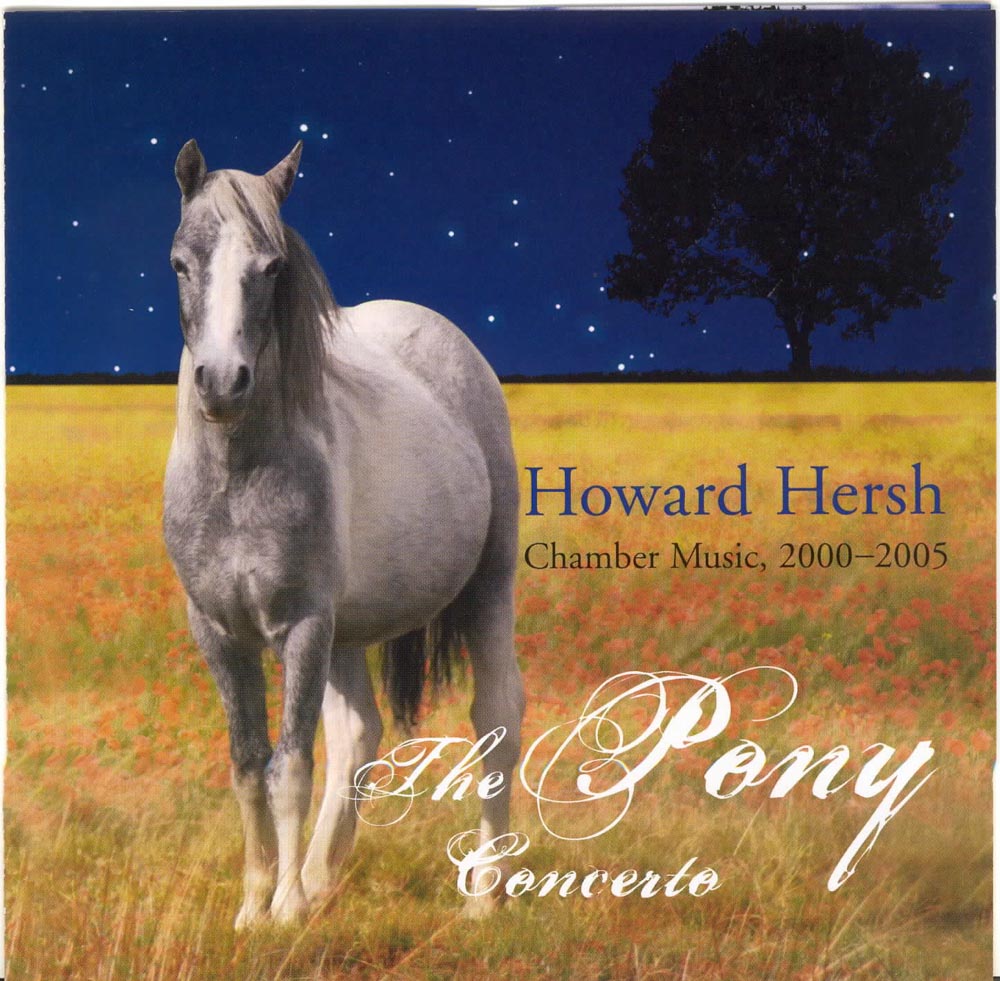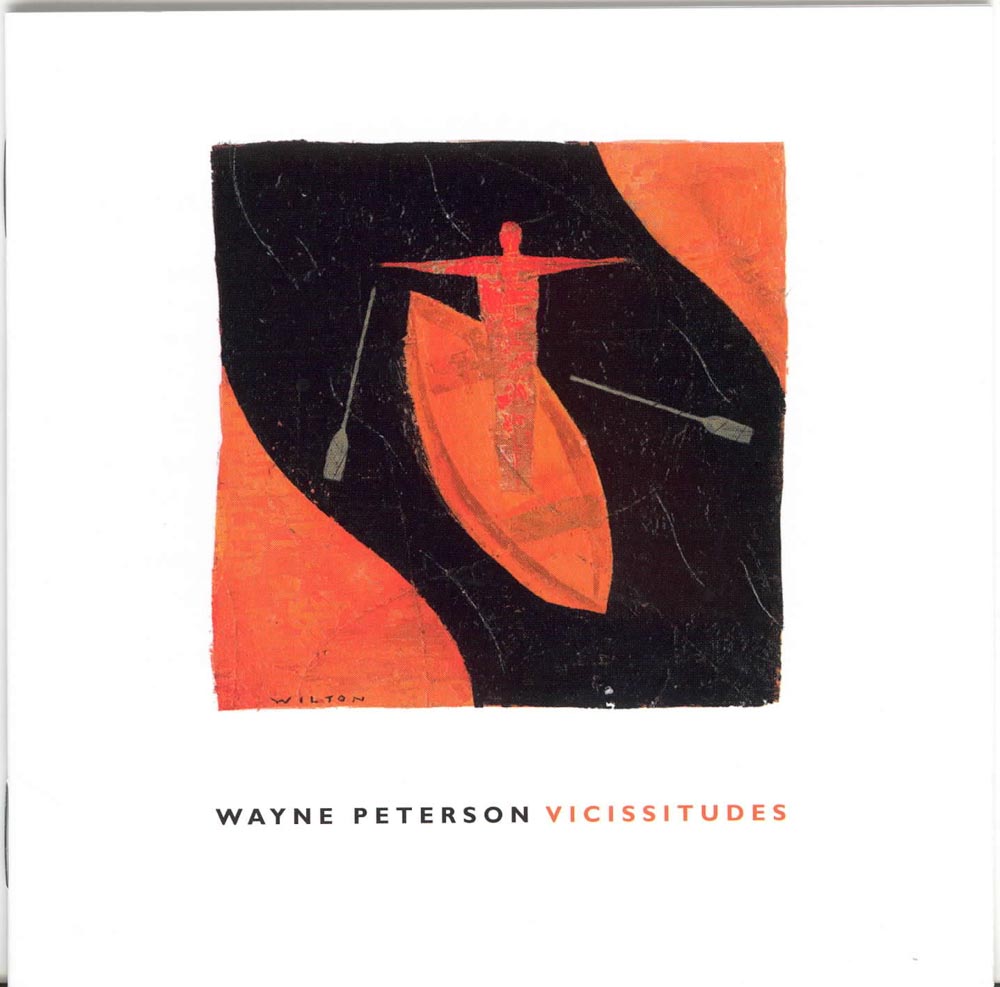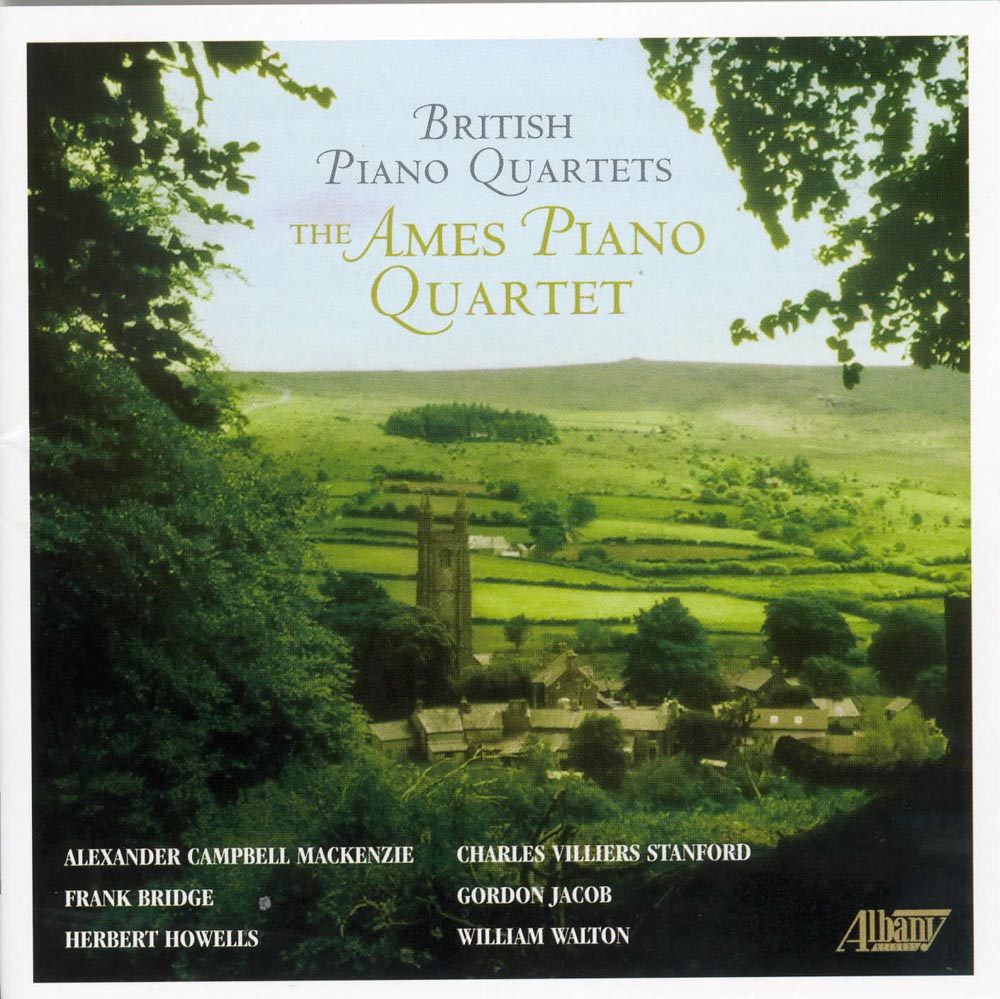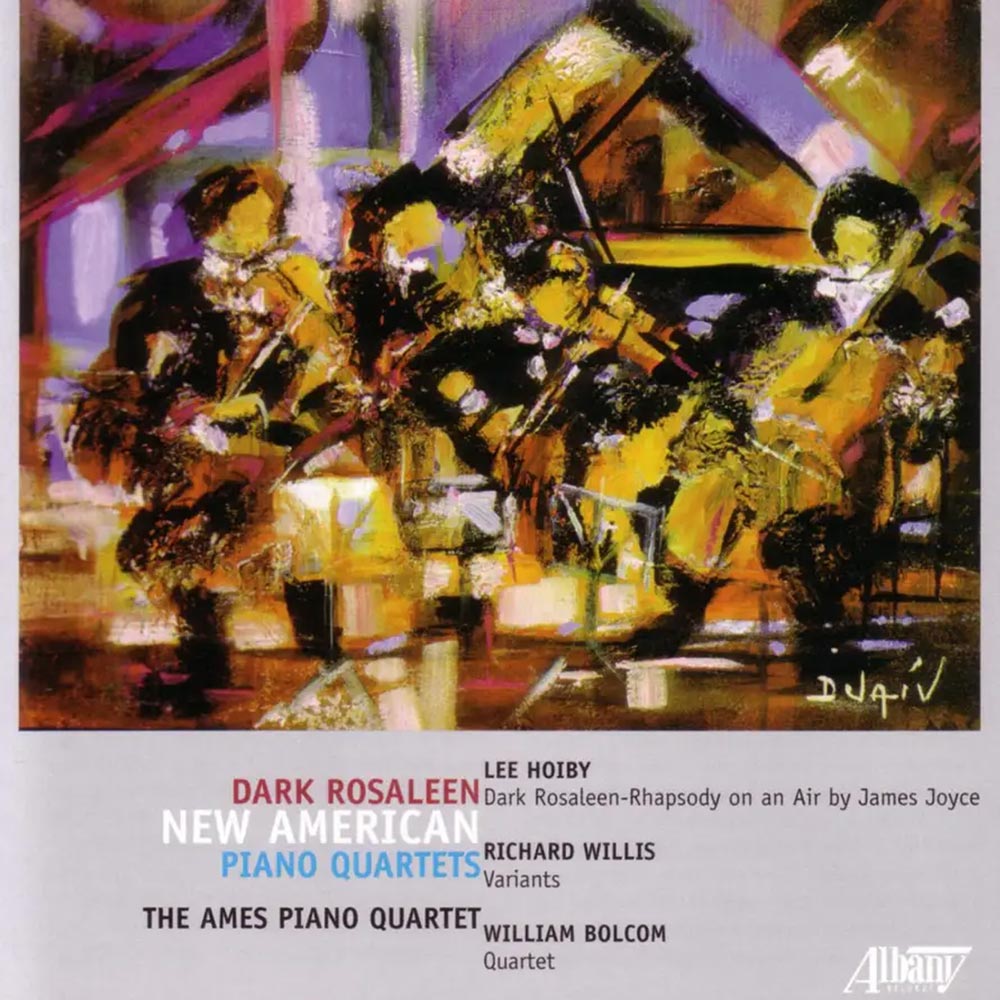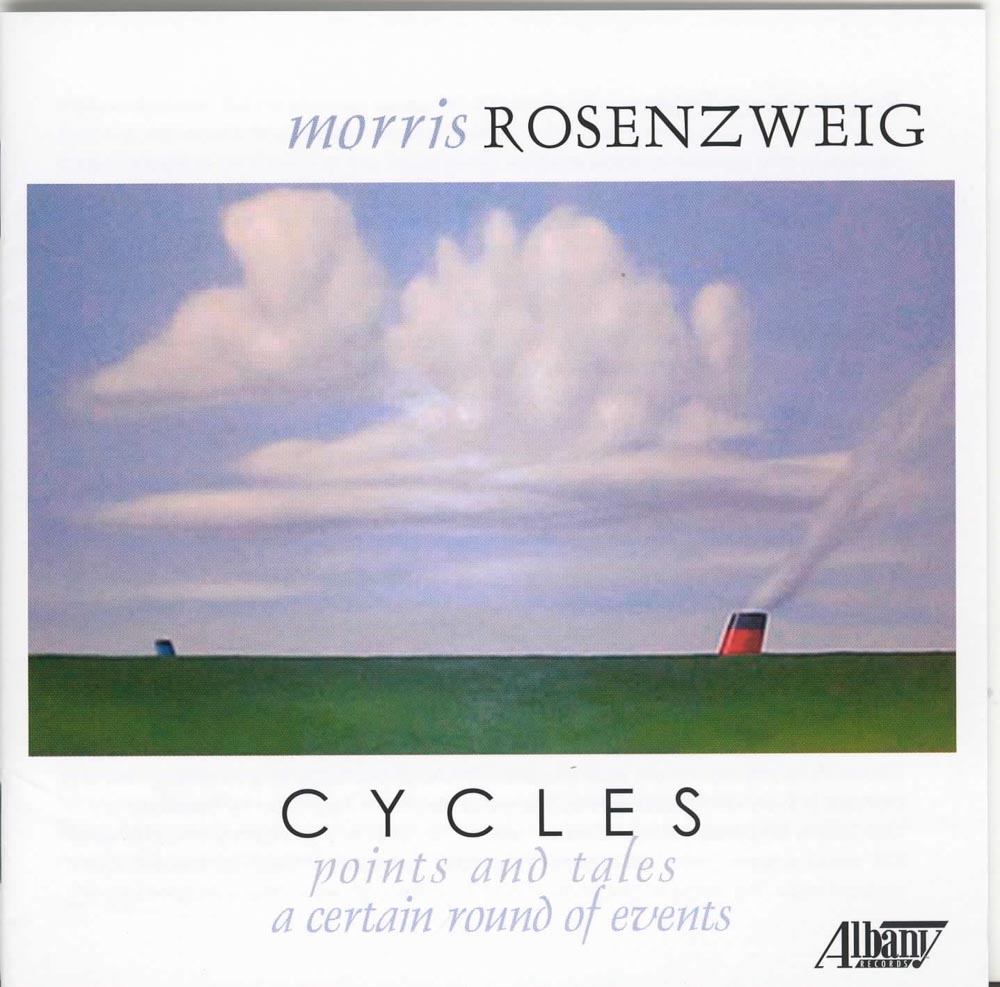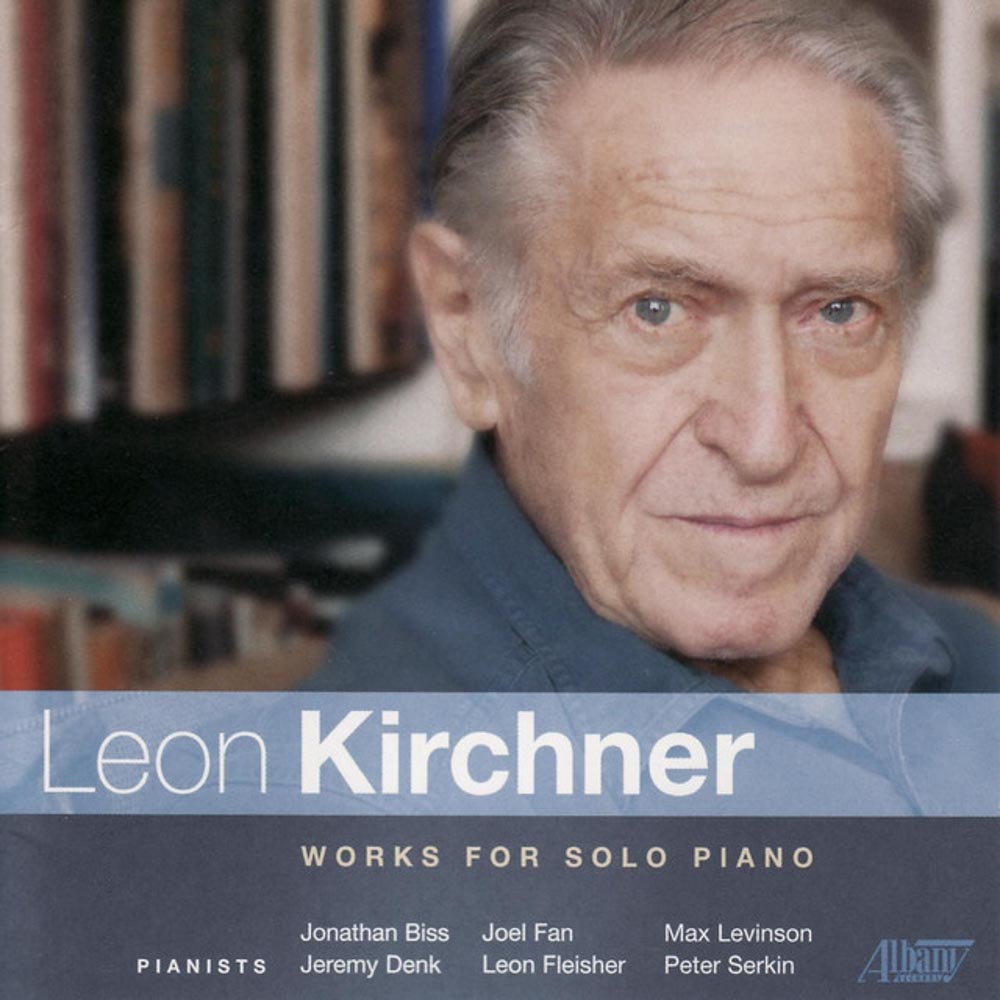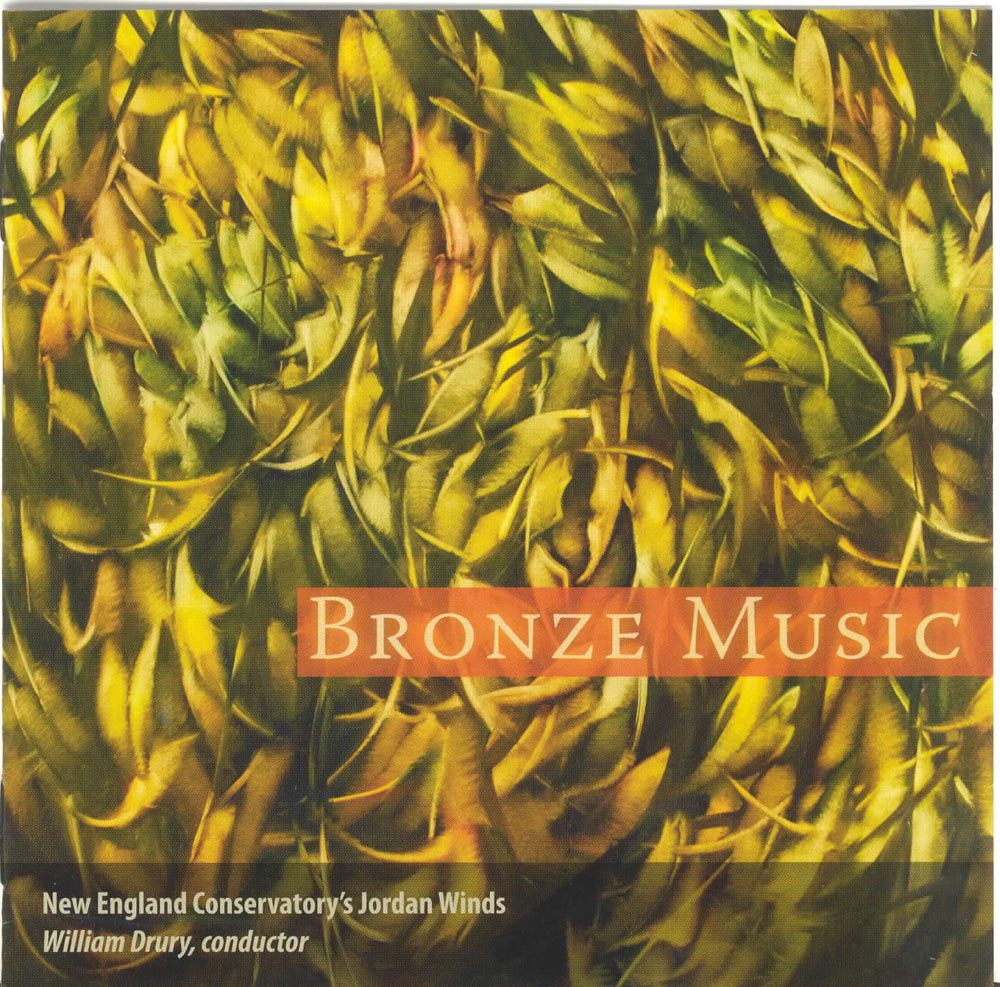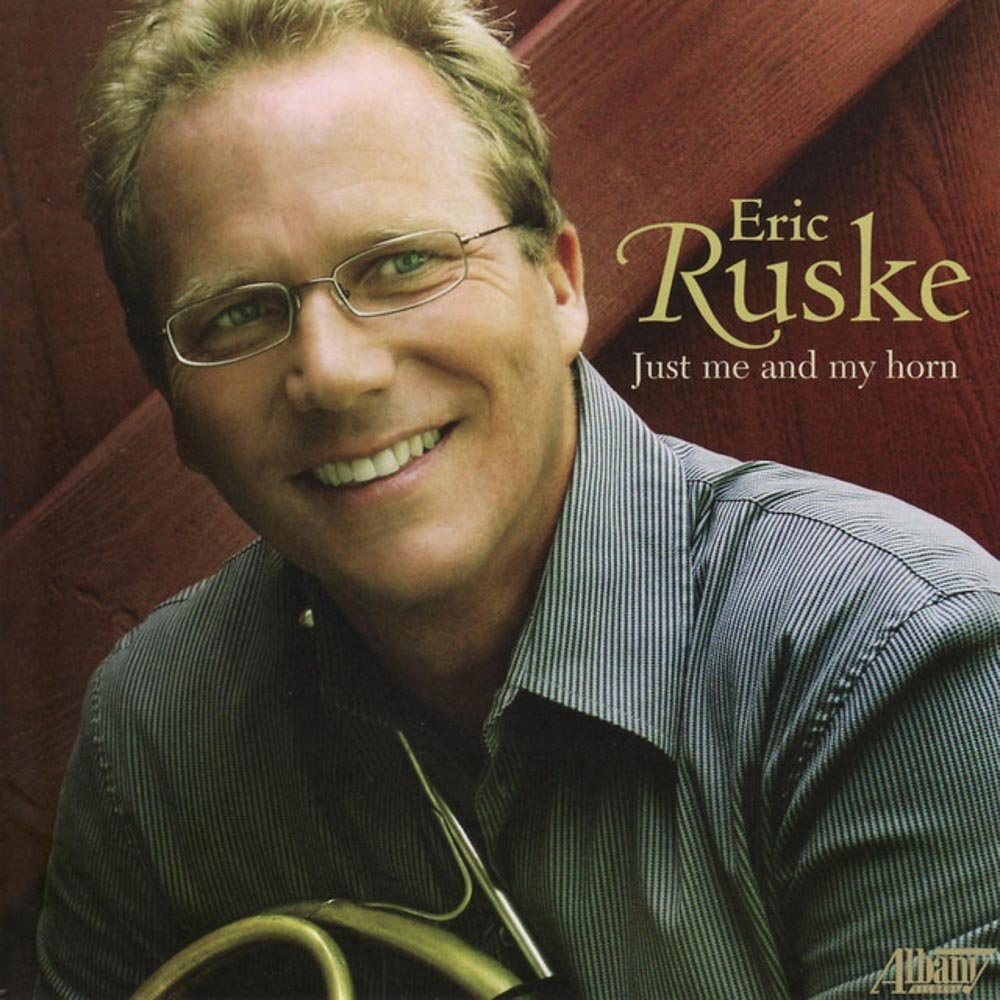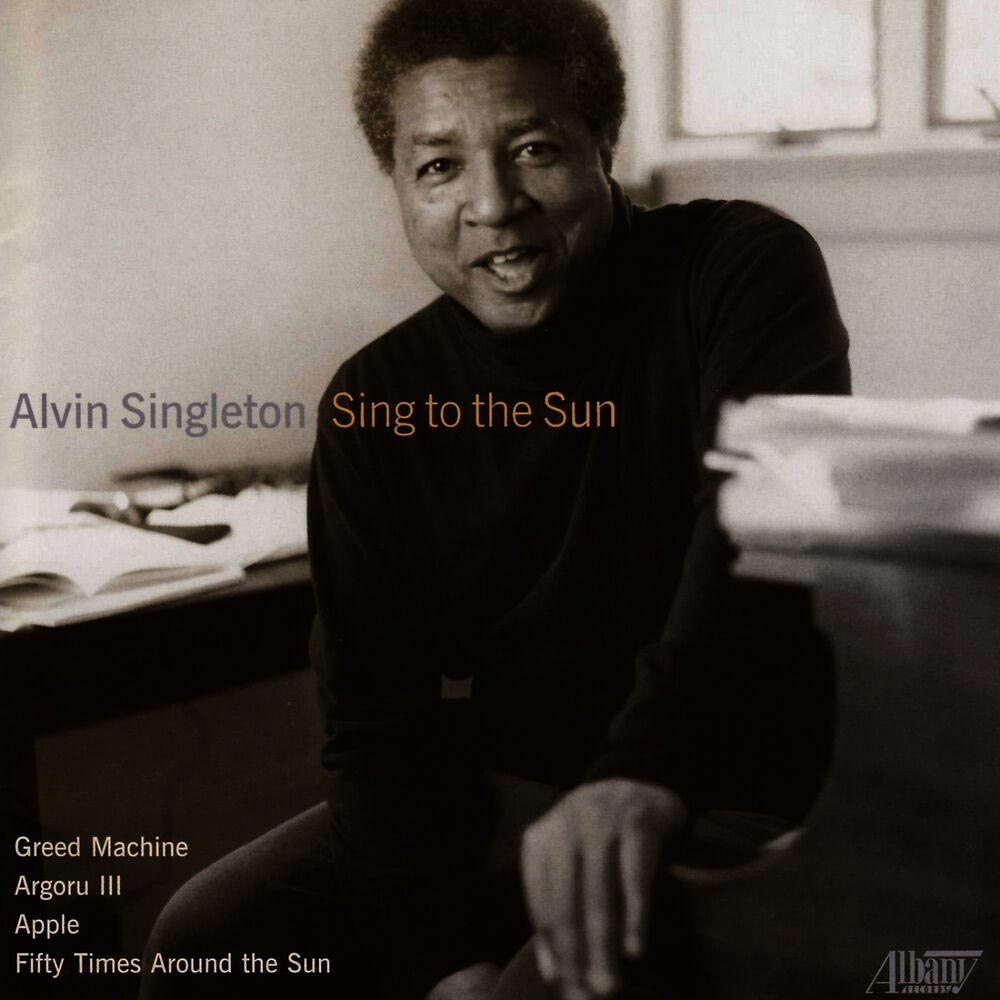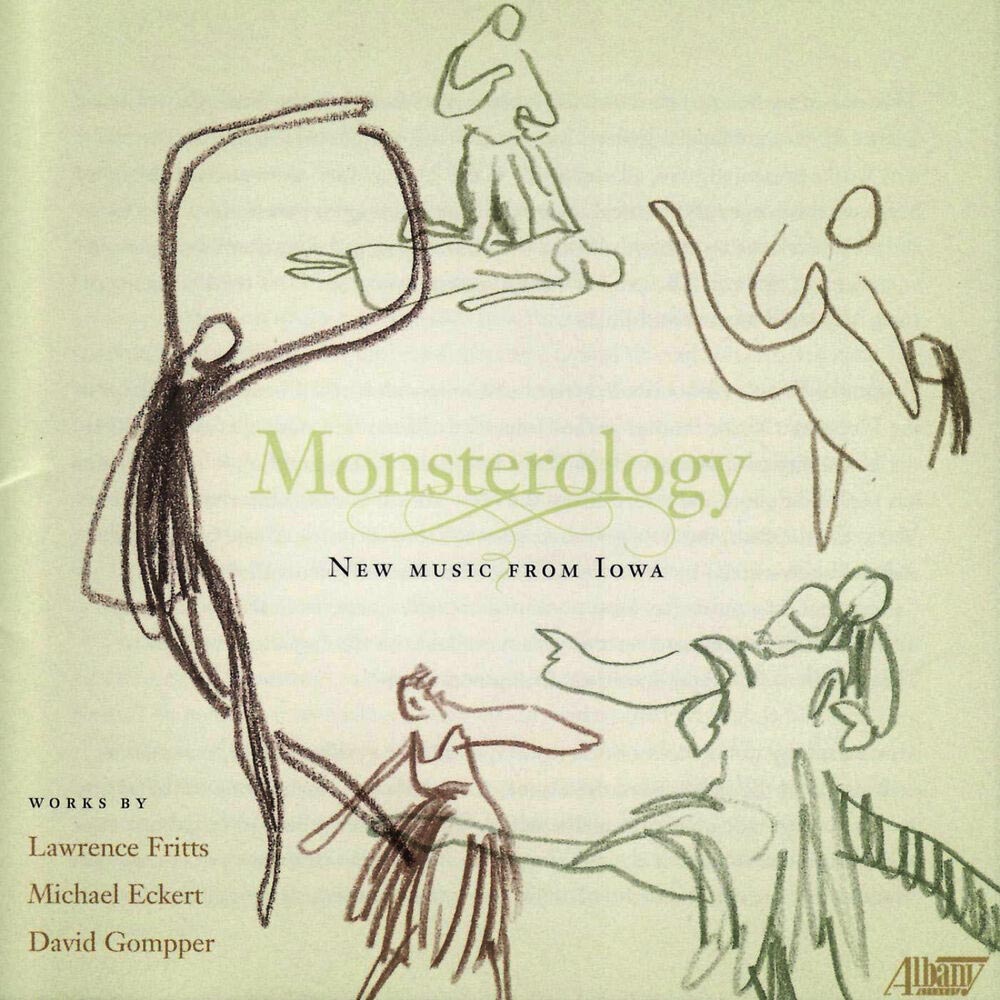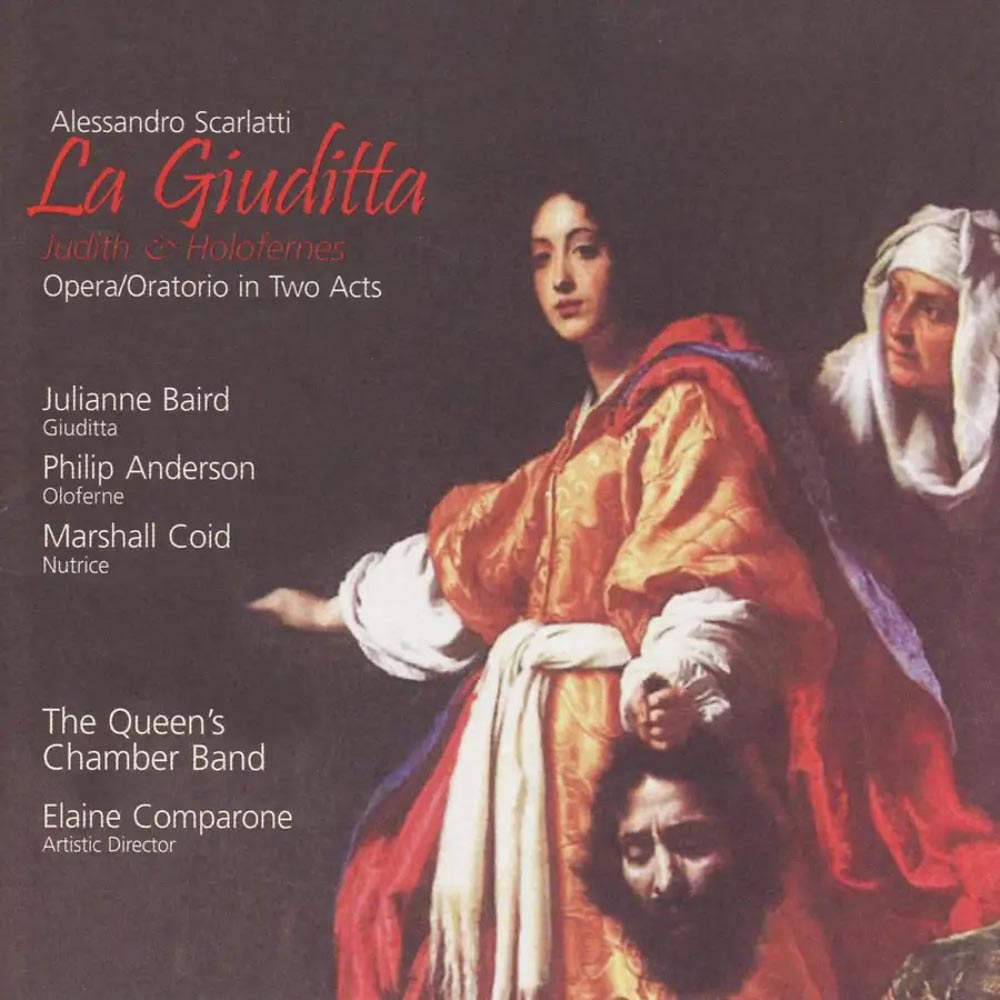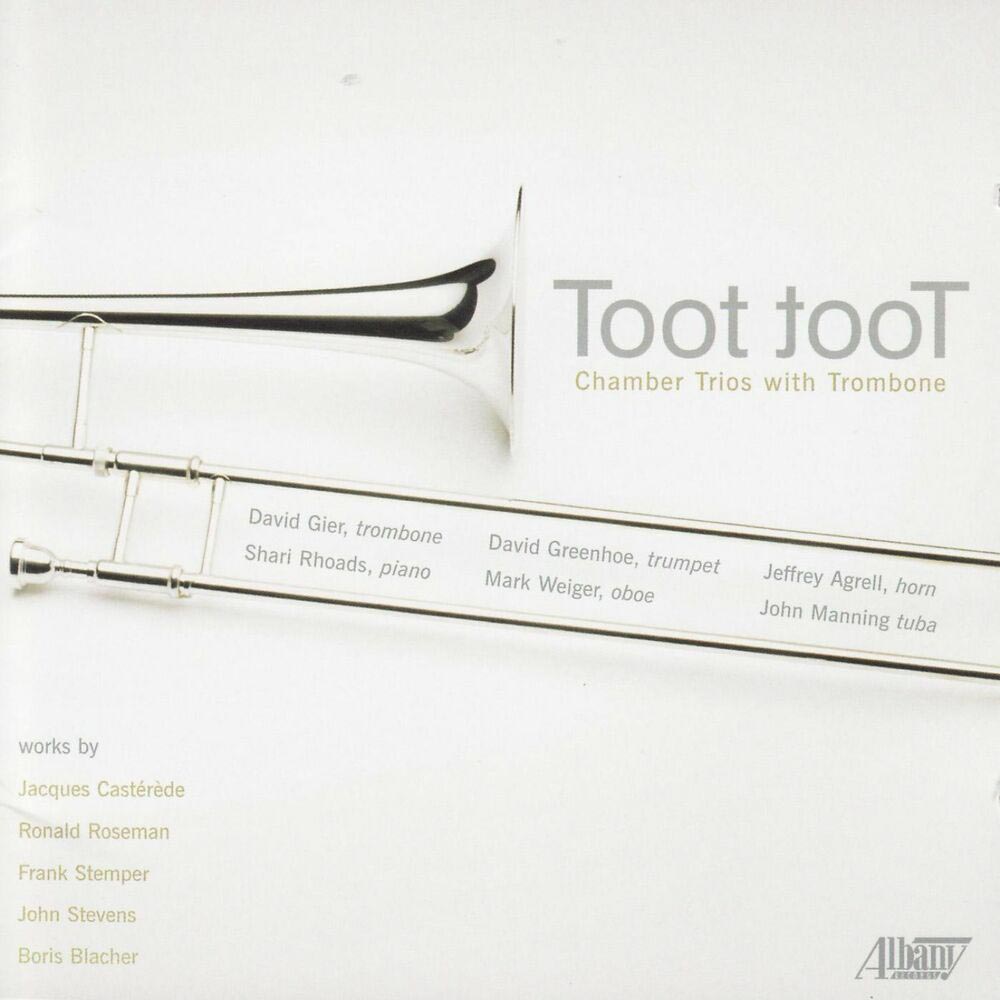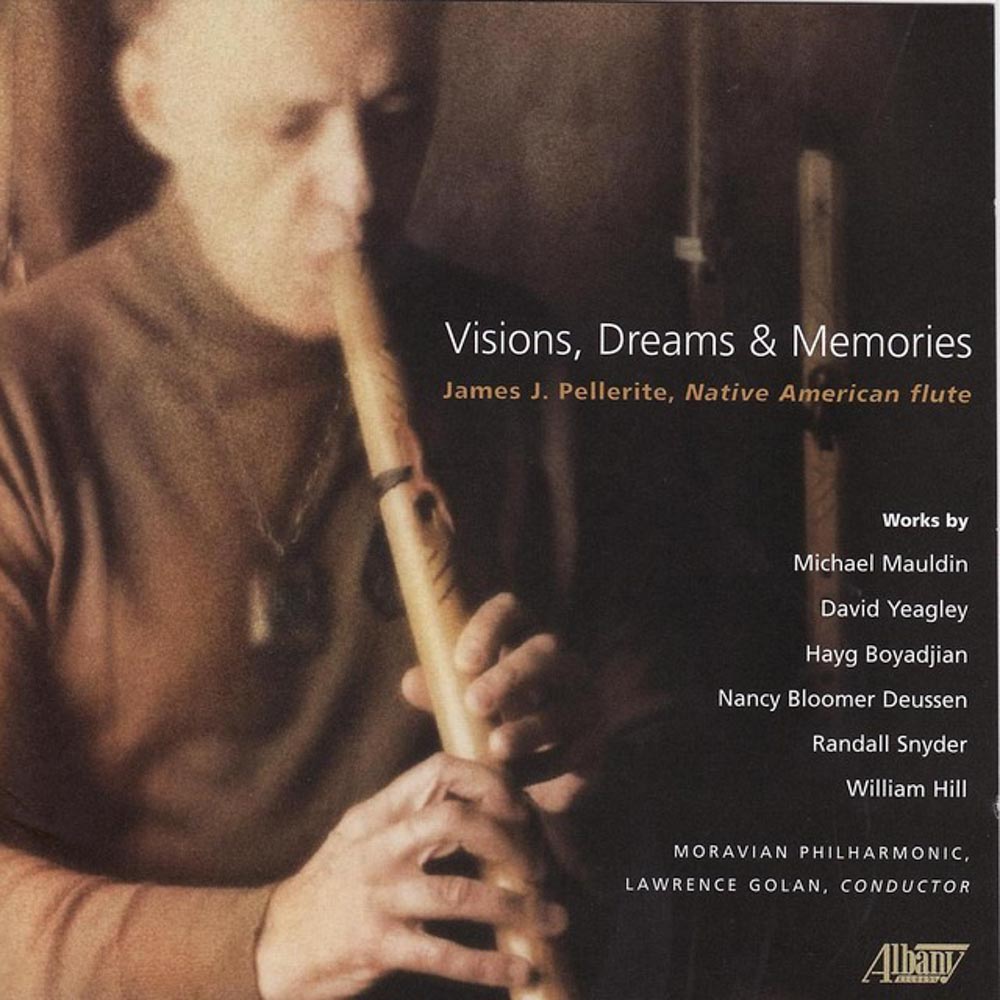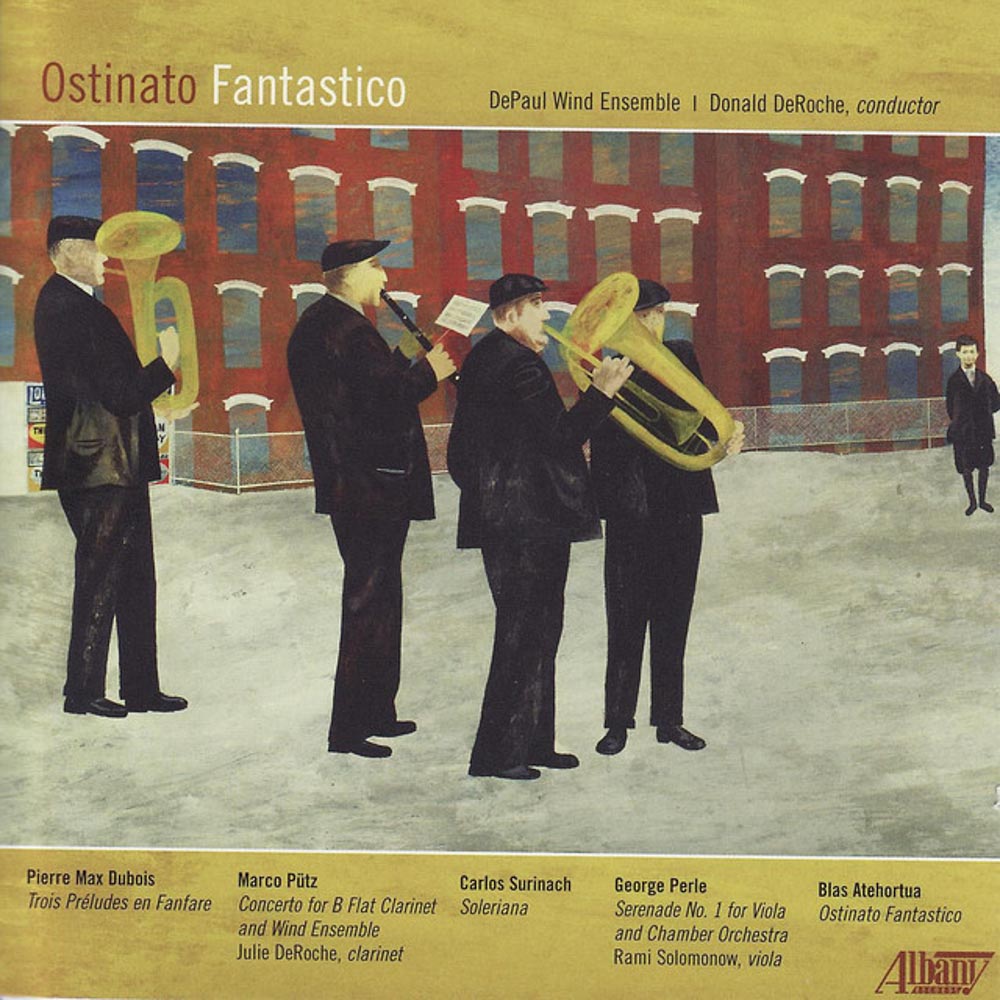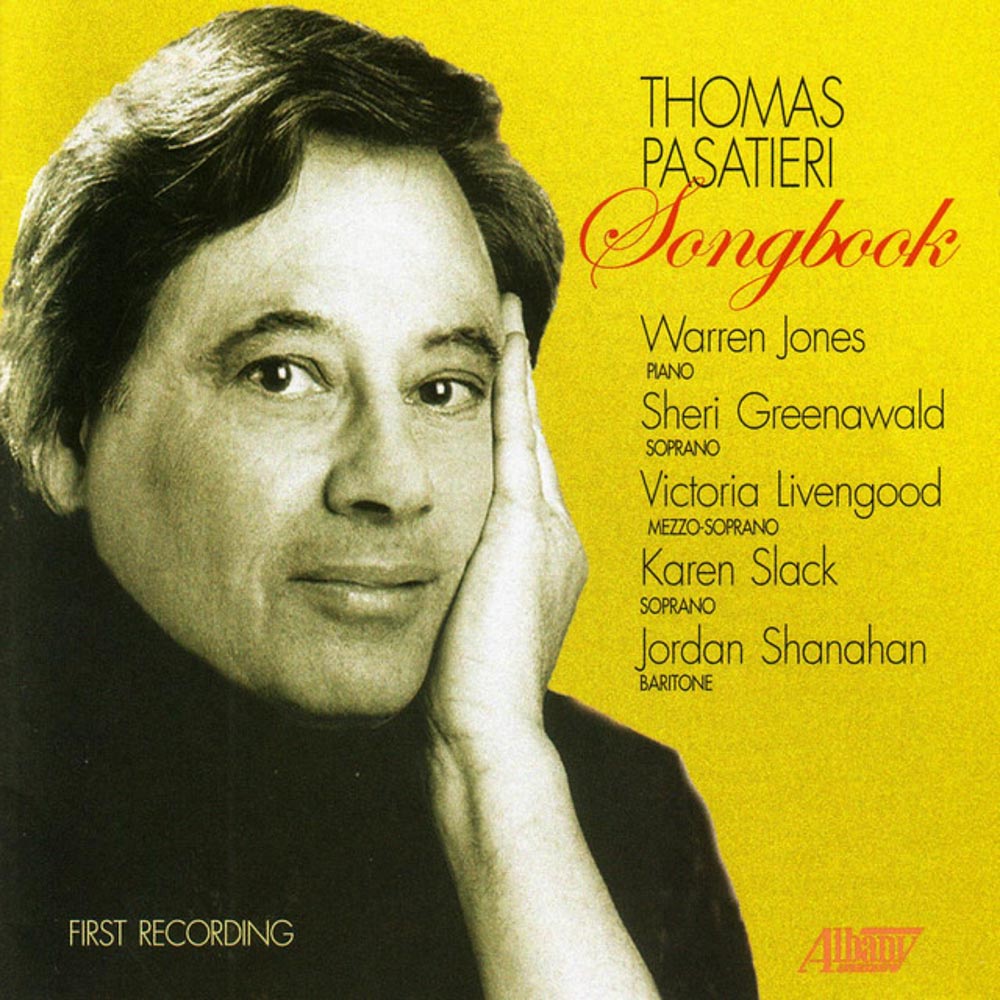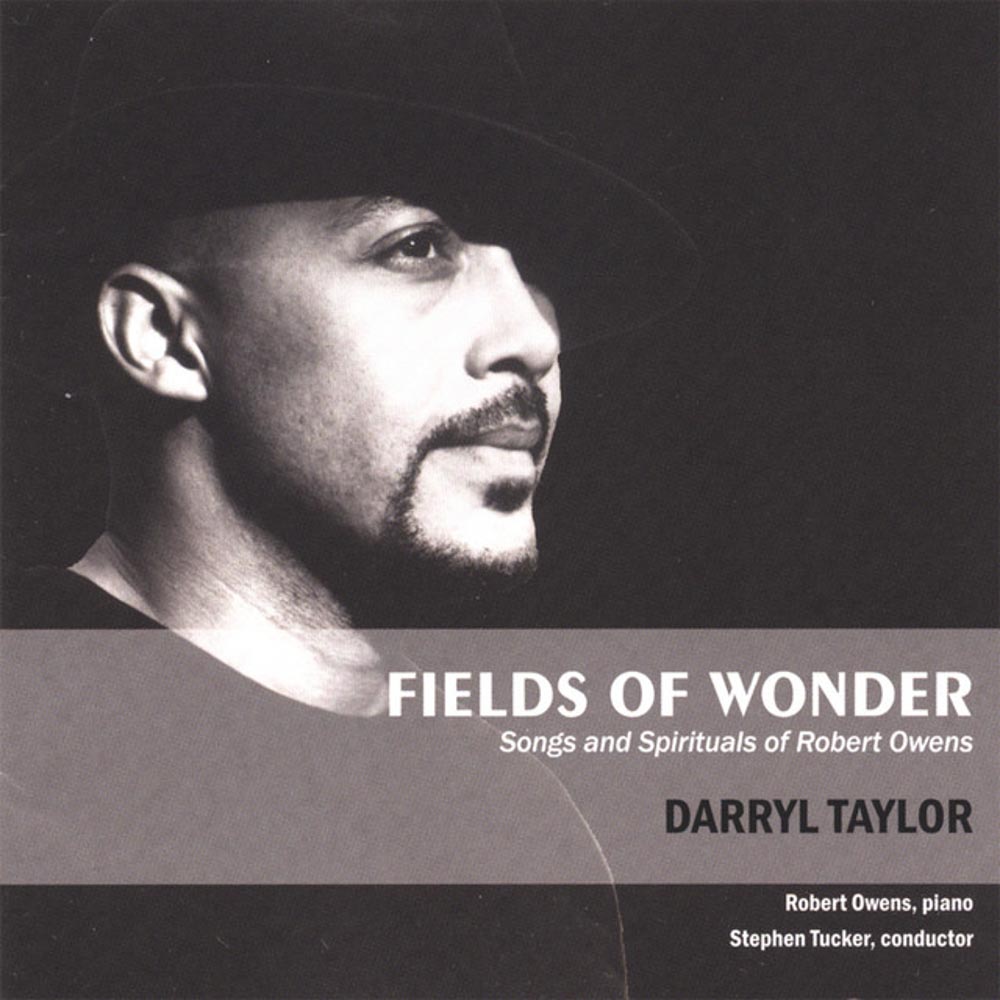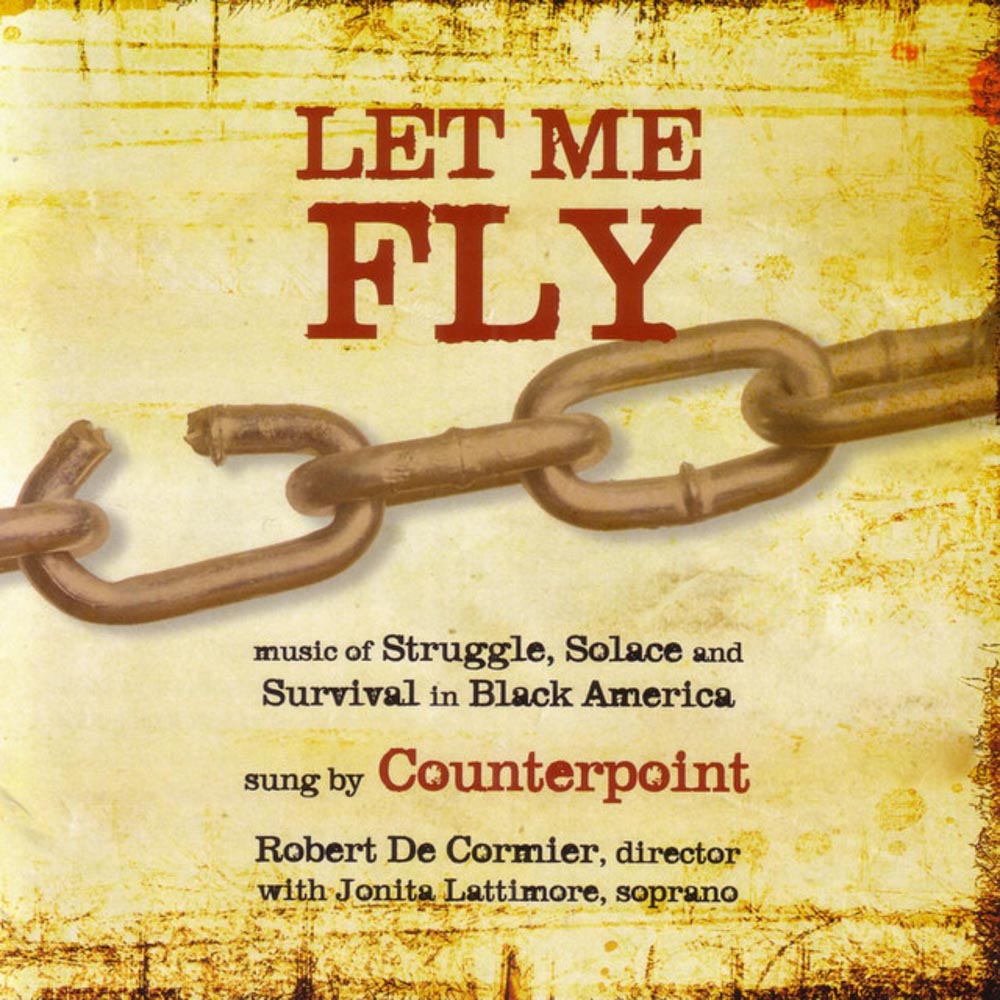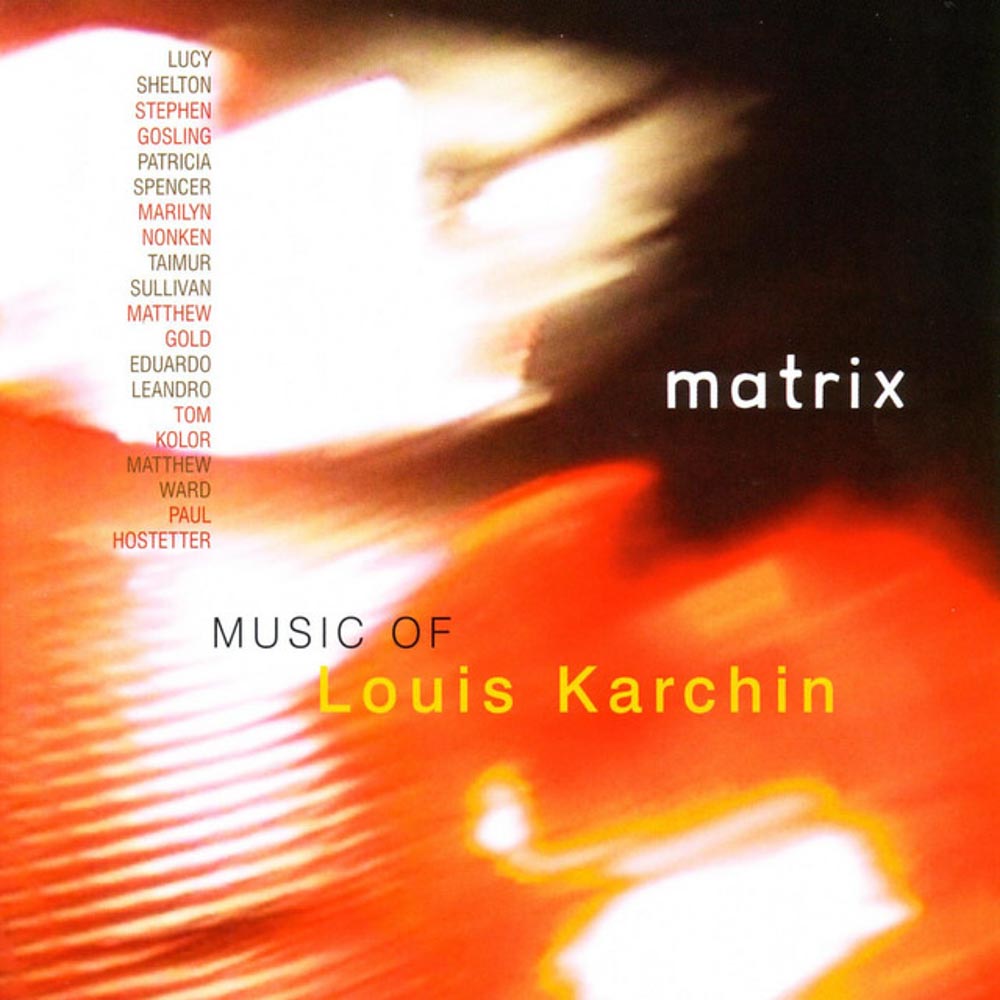Catalog #: TROY0930-31
Release Date: May 1, 2007InstrumentalBritish composer and conductor Samuel Coleridge-Taylor was the son of an English mother, Alice Hare, and a Sierra Leonean father, David Hughes Taylor. Early in his life, Coleridge-Taylor's music education was directed by Colonel Herbert A. Walters, a fellow parishoner and choir member. After passing an audition for the Royal Academy of Music in London in 1890, Coleridge-Taylor studied composition with and became a protTgT of Charles Villiers Stanford. Coleridge-Taylor possessed extraordinary musical sensibilities, and his rise to credibility as a composer of note was at least partly the result of his Royal Academy pedigree. Arguably his greatest work was Hiawatha's Wedding Feast of 1898. What set him apart, of course, was his mixed heritage and his promotion of pan-Africanism, which sought to unify and uplift native Africans as well as those of the African Diaspora. Coleridge-Taylor would incorporate the indigenous music of Africans and African-Americans and sought the preservation of such music. This major piano cycle can best be summed up in the composer's own Forward to the published score: "What Brahms has done for the Hungarian folk-music, Dvorak for the Bohemian, and Grieg for the Norwegian, I have tried to do for these Negro Melodies. The plan adopted has been almost without exception that of the Tema con Variazioni. The actual melody has in every case been inserted at the head of each piece as a motto. The music which follows is nothing more nor less than a series of variations built on said motto. Therefore my share in the matter can be clearly traced, and must not be confounded with any idea of "improving" the original material any more than Brahms' Variations on the Haydn Theme "improved" that."
Catalog #: TROY0925
Release Date: May 1, 2007InstrumentalRobert Helps was one of the few musicians of the 20th century who identified himself as both a pianist and composer, a tradition of musical life that was more akin to previous centuries. To Helps, these dual facets of life were equally important and highly dependent on each other. As a teenager he studied piano with Abby Whiteside and composition with Roger Sessions. Helps often wrote about Whiteside's "outlining" or "the magic of rhythm:" the importance of feeling one's way through a piece not by individual notes, but by larger sections that draw one towards a much longer destination. And it was Sessions who jump-started Help's career as one of the leading American new music pianists of the 1940s and 1950s, when he handed Helps a copy of his From My Diary. Helps would eventually give the New York premiere of Sessions's Sonata No. 2. As a composer Helps forged his own way, identifying with no single style. His works have been described as neo-romantic and tonal, impressionistic, twelve-tone, and minimalist. Albany is proud to present this first volume of the complete works for solo piano as performed by Naomi Niskala, a pupil of Gilbert Kalish and Claude Frank. Helps did so much for American music with his classic recordings of the past forty years or so, and it's time to hear his own remarkable piano works in a complete edition.
Catalog #: TROY0923
Release Date: May 1, 2007ChamberOne of the most telling indications of a composer's worth in our glutted musical marketplace is the response of one's fellow music-makers: those who create it as well as those who perform it. And in this regard, Alla Borzova, a Russian-trained composer-pianist from Belarus, is fortunate to claim the global microcosm of New York as her adopted backyard. When a composer of exalted stature praises one's music, the informed public tends to take notice. And well they should, when a modern master like John Corigliano speaks of Borzova's "extraordinary voice" and her "arresting and dynamic" music. David del Tredici finds "genius" (it takes one to know one) and "huge emotional impact" in her work. This engaging CD, preserving some of Alla's finest smaller-scale creations, reveals her sponge-like knack for soaking up far-flung musical influences wherever she goes. Arabic flavors - complete with third-tones, vocal quavers and other idiomatic touches - help to bring out the stark tragedy and outright insanity of her lovelorn Majnun Songs. Her American exposure has left her with a new-found taste for American jazz, as heard in her Pinsk and Blue - an amazing piece for accordion and piano. It is not easy to pin Borzova down stylistically - you'll hear everything from unaffected folk-tunes to cunning and sophisticated tone-rows from her.
Catalog #: TROY0922
Release Date: May 1, 2007ChamberEver since 16th century France the term tombeau (French for "tomb" or "tombstone") has denoted a set of poetic or musical compositions honoring the memory of a person, whether eminent or ordinary, real or imaginary. While the authorships of literary tombeaux were quite often collective, music tombeaux were usually created by individual composers and performers (i.e. Ravel's Tombeau de Couperin). It is no surprise that the death of the profoundly influential Claude Debussy (1862-1918) prompted Revue Musicale, a foremost music publication in Paris, to commission pieces from some leading European composers and performers, for a collection of works eulogizing the great composer. Each one of these musicians contributed to Tombeau in a unique and innately personal way, most of the works later becoming known as both individual pieces and parts of larger compositions). Encouraged by the success of Tombeau de Claude Debussy, Revue Musicale came up with another collection honoring the preeminent French composer and pedagogue Gabriel Faure (1845-1924). Composed by seven of Faure's best-known pupils (all French except for the Rumanian Enesco), the suite was completed and published by 1922, while the composer was still alive.
Catalog #: TROY0909
Release Date: May 1, 2007VocalAll composers of vocal music struggle to find texts suitable for musical setting. The search for words that ignite invention, inspire harmony, dictate rhythm, and suggest texture - all the while submitting to purely musical exigencies of form - is a perpetual and integral part of the creative process. Though the songs on this CD focus specifically on manifestations of love - infatuation, passion, anxiety, fidelity, betrayal, delusion, loneliness and reminiscence - their texts come from a wide range of sources. The larger theme is nonetheless poignantly epitomized by a phrase from James Joyce, The Unquiet Heart, which tells of the unsettled, unnamable and unutterable sensations we all experience in our lifelong search for love. Karen Smith Emerson's extensive concert career has included performances with the Los Angeles Chamber Orchestra, the St. Paul Chamber Orchestra, Boston Music Viva and the Marlboro Festival. Equally at home in music of the Baroque and early Classical music, she has performed leading roles in operas by Gluck, Handel and Mozart.
Catalog #: TROY0927
Release Date: April 1, 2007InstrumentalCyrille Rose was one of the most respected clarinet performers of the 19th century. A student of Hyacinthe Klose at the Paris Conservatory, he won the First Prize in clarinet in 1847. Rose taught there from 1876 to 1900. From 1857 to 1891 he served as clarinetist at the Paris Opera. Renowned especially for his insistence on careful phrasing, many of his students went on to win first prizes. Today, Rose is remembered for his series of clarinet etudes, most of them arrangements of earlier works for other instruments. This CD presents his best-known collection, the Thirty-Two Etudes. Rose based all but one of these studies on Franz Wilhelm Ferling's Forty-Eight Etudes for Oboe, Op. 31. He generally preserved the outline of Ferling's original etude, but transposed the key and made alterations at times in the melody, rhythm and articulations to render the pieces stylistically idiomatic for the clarinet. His goal was to develop control and good phrasing in the performer. They are in the keys of C, G, F, D, B-flat, A, E-flat, E, B, and D-flat Major, plus a, e, d, b, g and c minor. During his eleven years with the Metropolitan Opera Orchestra, Sean Osborn traveled throughout the United States and the world. He has also appeared as guest principal clarinet with the New York Philharmonic, Pittsburgh Symphony, Seattle Symphony and the American Symphony Orchestra. Currently clarinet teacher at the University of Washington, he is also an award-winning composer.
Catalog #: TROY0924
Release Date: April 1, 2007ChamberWilliam Hill has been critically acclaimed as a composer, soloist, visual artist, recording artist and conductor. Currently he is Principal Timpanist with the Colorado Symphony and teaches composition and counterpoint at Denver University's Lamont School of Music. Mr. Hill has served as a composer with the Ohio Chamber Orchestra, National Music Festival, the Colorado and Denver Symphonies, and the Nova Series of Salt Lake City. On a trip with his wife Natalie to Ocracoke Island in the Outer Banks of North Carolina and observing the teeming water life, Natalie remarked, "Wow, check out those funky little crustaceans," and the inspiration for the first work was born, reflecting not only the literal ebbs and flows of the tides, but of the impact made on all creatures by the changes in season and the pacings of life in general. Aurora Borealis, featuring the renowned James J. Pellerite, is an impressionistic tone poem depicting the icy monochromatic stillness of the far North, with gradual hints of color developing into more subtle shadows of the spectrum as the piece evolves. Seven Abstract Miniatures is based on pen and ink sketches by the composer, and shows the interrelationships that can exist between music and art (such as Pictures at an Exhibition).
Catalog #: TROY0921
Release Date: April 1, 2007ChamberRoss Bauer attended New England Conservatory and Brandeis, studying with John Heiss, Martin Boykan, Arthur Berger and Luciano Berio. His honors include a Guggenheim Fellowship, two Fromm Foundation commissions and a Koussevitzky commission. Bauer is a master composer of deeply expressive, highly charged music in a wide variety of genres. Throughout his works, whether they are orchestral, concerti with orchestra or chamber ensemble, or vocal or chamber music, his sense of form and instrumental writing is exquisitely idiomatic and his orchestration crystal clear and dazzling in its color. His vocal writing is particularly beautiful. He pays close attention to the meaning and sound of the texts that he sets, as well as to the formal implications of those texts. This CD, featuring music written in the 1990's for voice with instruments and for instruments alone, makes an excellent introduction to Ross Bauer's work, which traverses a wide range - from tender lyricism to tremendous ferocity. Bauer writes true chamber music in which every part is an essential element of an unfolding line and harmony. While the surface relationships may seem complex, the underlying harmony is always clear, and the pacing of that harmony masterful.
Catalog #: TROY0917
Release Date: April 1, 2007VocalRobert Schumann was unwell in the years preceding the composition of Dichterliebe. The year 1840, however, proved to be one of unexpected delight. He was finally able to marry the woman he loved and coveted, Clara Wieck, the daughter of his former teacher, Friedrich Wieck, a musical icon in Leipzig. It seems odd, then, that after a five-year struggle to obtain the right to marry the woman he loved and the constant success of such works as Davidsbundertanze, Op. 6, Kinderszenen, Op. 15 and the song cycles Liederkreis, Op. 24 and Frauenliebe und Leben, Op. 42, he should turn to such a dark subject as the one presented in his sixteen-song cycle Dichterliebe, set to texts by the German poet Heinrich Heine. "A Poet's Love" is a murky tragedy with its early flourish of love, its eventual deterioration and the poet's despair of every loving again, even preferring death to a new attempt. American poet Elizabeth Kirschner, who teaches at Boston College and who has collaborated with many modern composers, has created a new set of texts for Dichterliebe, which breaks the cycle into four distinct sections of four songs each (Spring I-IV, Summer V-VIII, etc.). Kirschner has taken the "season of love" in the Heine poems and transformed them into a full year of desperation, elation, introspection and rejection. Soprano Jean Danton has performed widely on the opera, oratorio, musical theatre and concert stage, and has previously performed in the world premiere of Carson Cooman's Seducing Summer by the Sea, on a libretto by Elizabeth Kirschner.
Catalog #: TROY0908
Release Date: April 1, 2007ChamberLooking back over the past 100 years, it would seem that the string quartet has been the most popular outlet for contemporary composers' most intimate thoughts. It may have taken longer for the unique blend of violin, piano and cello to catch up in terms of repertoire, but this remarkable disc displays the diverse voices that can be heard in this form. The Finn Segerstam has been best known as an orchestral conductor and a very prolific composer (as of January 2nd of this year, he had composed 173 symphonies). This Trio is a perfect example of the free-flowing, almost improvisational style he calls "free-pulsative." Needless to say, Hans Werner Henze has now achieved status as one of the world's most significant composers, and his early Kammersonate reflects the neo-classical influences of the post-War era. Both Sharafyan and Mansurian are Armenian. Sharafyan's music is rooted in ancient Armenian culture, while Mansurian's approach is in a more personalized, mystical vein. Finally, the Baird Trio's cellist, Jonathon Golove, has contributed a work using material from an opera based on Dashiell Hammett's Red Harvest. The Baird Trio, in residence at the University of Buffalo, performs a wide range of repertoire, devoting particular attention to rarely heard and recent original works for their medium. The members believe the piano trio has a significant role to play in 21st century musical life.
Catalog #: TROY0915-16
Release Date: March 1, 2007OperaThe Gondoliers, the sunniest of all the Savoy operas, was preceded by dissension and followed by the bitterest of quarrels between its collaborators. After Yeoman of the Guard (1888), Gilbert and Sullivan exchanged peevish letters, each accusing the other of swamping his efforts. D'Oyly Carte attempted to make peace between the two, and they began their new collaboration, in Gilbert's words, as "master and master -- and not as master and servant." (One wonders, in the latter, supposedly ideal, arrangement, just who was which!) During the premiere of The Gondoliers at the Savoy in London, on December 7, 1889, the demand for encores almost doubled the length of Act I. Critics praised not only the score and libretto, but also the lavish sets and costumes. This live performance is yet another feather in the cap of the Ohio Light Opera, which has been dedicated to producing and promoting the best of the traditional operetta repertoire for more than 25 years. This CD set, like so many others in the Ohio Light Opera/Albany series, will give the operetta aficionado a taste of what makes this company unique.
Catalog #: TROY0914
Release Date: March 1, 2007ChamberHere is a brilliant new CD release by one of the masters of California's thriving new music scene...filled with melodic invention and fluid rhythmic tapestries, this is music of the Heart guided by a keen intelligence - Terry Riley. Howard Hersh was born in Santa Monica and studied piano and composition at Stanford University. Steeped in 20th century modernism, his music has expanded to embrace a variety of tonalities, dance rhythms and quotations, dramatic narratives and explorations of the social conscience. According to the composer, his work is driven by a search for "the nexus of musical abstraction and representational humanity." A recipient of grants and awards from organizations that include Meet the Composer, the American Symphony Orchestra League, the American Composers Forum and the Rex Foundation (the non-profit wing of The Grateful Dead), his works have been performed at Tanglewood, Grace Cathedral and throughout Europe. Together with his compositional work, Hersh has directed many new music groups, including Music Now and the San Francisco Conservatory New Music Ensemble, which he founded, and has served as Music Director of radio station KPFA-FM.
Catalog #: TROY0912
Release Date: March 1, 2007ChamberWayne Peterson's music is that of a composer who embraces and takes delight in the hands-on process of making music, especially as it relates to the combinations and interactions of various instruments and their sonic possibilities. In a very real sense the musical ideas appear to evolve naturally from these capabilities without in any way being limited by them. As he writes in the program notes for Duodecaphony for viola and cello, "I welcomed the opportunity to address anew the problems of melody, counterpoint, harmony and timbre as they applied to this somewhat restricted choice of strings." A winner of the 1992 Pulitzer Prize in Music for his orchestral work The Face of the Night, the Heart of the Dark, Peterson's music is marked by a wonderful rhythmic fluidity, which derives from his experience as an accomplished jazz pianist. Perhaps most importantly, Wayne Peterson's musical language is at once sophisticated and direct in its approach to the listener; it never compromises its basic integrity. In his hands the instruments are agents of luminous beauty, beckoning us to even deeper aesthetic pleasures. Peterson's music can also be heard on TROY601, 689 and 766.
Catalog #: TROY0910-11
Release Date: March 1, 2007ChamberDuring one of his recital tours to Edinburgh during the 1860s and 1870s, Anton Rubinstein bluntly told Alexander Mackenzie Sie haben keine Komponisten (You [Britain] have no composers). From his account in his engaging memoir A Musician's Narrative (1927), Mackenzie apparently let the comment pass unanswered. After all, the Russian virtuoso was simply voicing a view widely heard in continental Europe - and even in Britain as well. Many years later, as he surveyed a career that had spanned six decades, Mackenzie noted with "many gleams of satisfaction" the number of important musicians and composers of high merit who had come along. In company with his slightly younger contemporaries, Hubert Parry, Charles Villiers Stanford and Edward Elgar, Mackenzie was himself part of the generation of musicians born in the mid-19th century who first demonstrated that Britain did have composers - and fine ones. Their successors - among them Vaughan Williams, Frank Bridge, Herbert Howells and William Walton - completed the transformation of European opinion. Along with presenting a compilation of signal British contributions to the piano quartet repertoire, this set offers a sample of the music of some of the very composers who helped deliver British music from its lowly state as a source of jests to a place of international recognition and esteem.
Catalog #: TROY0730
Release Date: February 1, 2005ChamberLee Hoiby writes about this recording: “The Ames Quartet worked closely with me on the development of Dark Rosaleen, collaborators from the word go, and continually bless it with loving insights and efforts. Together we have explored some evocative remnants of James Joyce c. 1900; Mangon, the deranged Dublin litterateur of the 1830s; and the dolefully passionate Hibernian ethos. As I myself am a Midwesterner who has chosen to express himself musically in a classic European vocabulary, it is gratifying to hear the Ames players of Iowa display their great reservoirs of nuance and schwung and historical imagination. They are simply superb musicians and I warmly thank them.” William Bolcom writes about the performance of his work: “Your performance is the most emotionally intense I have heard…you sustain the emotional curve extremely well…the slow tempo (of the last movement) pays off at the end – really frightening! I don’t compose quite as I did 30 years ago, but the feeling of the piece seems so present right now. Where we are today had its roots in that time. The Intermezzo seems particularly sad to hear at this moment, and you have played it with much personality.” Richard Willis’ Variants, commissioned in 1990 by Quadriga (a piano quartet then in residence at Texas Tech University), follows similar principles to Hoiby’s Dark Rosaleen. It, too, is a set of variations built upon a melody presented first by the viola, in which an internal interval (this time a minor second heard in the first two pitches), serves as the principal unifying element of the composition. Both begin with a haunting quality and then present the motive in a variety of guises ranging from virtuoso to angular to jazzy to lyric, highlighting the late 20th century composer’s dual interests in maintaining a tightly controlled form based upon restricted motivic material, while still exploring a wide range of moods.
Catalog #: TROY0907
Release Date: March 1, 2007InstrumentalMorris Rosenzweig was born in New Orleans, where he grew up among the tailors, merchants and strong-willed women of an extended family which has lived in southern Louisiana since the mid 1890s. His works have been widely presented throughout the United States, as well as in South America, Europe, Mexico and Israel. His catalog of works includes pieces for orchestra, various chamber ensembles, compositions for live instruments and electronics, two song cycles, two piano cycles, solo pieces and one opera. He was educated at the Eastman School of Music, the University of Pennsylvania and Columbia University. Points and Tales is a cyclic composition for piano in 12 movements. What is striking about the work is the overall austerity of its language: its searching, spare and unadorned expression. The listener is invited to savor the beauty of harmonies exquisitely voiced, the play of simple, unhurried melodies, and the pure tones of the piano. A Certain Round of Events, based on original, Italian and Chinese texts and words of Rilke, consists of nine songs plus a prelude, interlude and postlude, and Rosenzweig conceives of the texts in terms of three concurrent "senses of time": subjective, seasonal and unchanging.
Catalog #: TROY0906
Release Date: March 1, 2007InstrumentalAlbany is proud to present this generous selection of piano music by one of America's most important composers. Leon Kirchner is one of the last of that stalwart breed who first came to prominence in the late 1940's and early 1950s. A pupil of Bloch, Schoenberg and Sessions at the University of California, Berkeley, Kirchner's music definitely shows affinities with Schoenberg in outlook and temperament. No less than Schoenberg, Kirchner is both an ardent modernist and a volatile Romantic, a composer whose sophisticated awareness of the past informs a restless search for authenticity. A classic example would be his Piano Concerto No. 1, first recorded over 50 years ago by the composer himself with Dmitri Mitropoulos and the New York Philharmonic. Like much of the music on this disc, there is edginess and a tough demeanor, but there is real music present, in the "traditional" sense. This significant new release reissues classic performances by Leon Fleisher and Peter Serkin as well as presenting important recent pieces such as the Sonata No. 2 and The Forbidden.
Catalog #: TROY0913
Release Date: February 1, 2007Wind EnsembleAny serious collector of wind ensemble music will be excited by this disc that offers the opportunity to hear a set of works that are probably unfamiliar to most of you; no Lincolnshire Posey this time! It's hard to believe that the modern wind ensemble of the kind that commissions and performs contemporary works has been around for barely sixty years. The tradition was started with the famed Eastman Wind Ensemble and now every major Conservatory and University probably has a performing group. Here's another: primarily made up of freshman and sophomores, New England Conservatory's Jordan Winds performs woodwind, brass and percussion repertoire from the Renaissance to the present day for octet to full wind ensemble. World premieres and important works that are sometimes neglected because of unusual instrumentation form an integral part of the group's Jordan Hall concerts. Under William Drury, the ensemble has given compelling performances of sophisticated contemporary music including Varese, Messiaen, Sapieyevski, Foss, Druckman, Burke, Schoenberg and Frank Zappa. Albany Records has made an ongoing commitment to this kind of music and we feel that this release is a major contribution to the wind discography!
Catalog #: TROY0903
Release Date: February 1, 2007InstrumentalAlbany is proud to present another, truly unique recording by horn player Eric Ruske. His previous albums for horn with piano or orchestral accompaniment (TROY456, 615, 782) have been among best sellers among horn aficionados and players alike. This release presents Ruske strictly solo, with a wonderful blend of familiar and unusual works, particularly the colorful Persichetti and Ketting compositions. At the age of 20, Ruske was named Associate Principal Horn of the Cleveland Orchestra. He also toured and recorded extensively during his six-year tenure as hornist of the Empire Brass Quintet. His impressive solo career began when he won the 1986 Young Concert Artists International Auditions, First Prize in the 1987 American Horn Competition, and in 1988, the highest prize in the Concours International d'Interpretation Musicale in Reims, France. An active chamber musician, he has appeared with the Lincoln Center Chamber Music Society, the Moab Music Festival, the Newport Music Festival and the Spoleto Festival, just to name a few. An Associate Professor and member of the faculty of Boston University since 1990, Mr. Ruske also directs the Horn Seminar at the Boston University Tanglewood Institute.
Catalog #: TROY0902
Release Date: February 1, 2007InstrumentalAward-winning composer Alvin Singleton has written music for theatre, orchestra, solo instruments and a variety of chamber ensembles. A composer-in-residence with the Atlanta Symphony in the late 1980s and a student of renowned Italian composer Goffredo Petrassi, Singleton's works have been performed by the orchestras of Boston, Pittsburgh, Houston, Cincinnati, Cleveland, Philadelphia, Detroit and many more. Sing to the Sun is a set of five chamber works ranging from solo flute to large ensemble with chorus. Singleton exhibits in the recording of these five works the patience, appreciation of quiet subtlety, and psychological control that make for fine chamber music. Traditionally, chamber music is players' music and in that, traditionally "serious" (as are all five of the present works). But Singleton fans also expect to be caught up in the Singleton wit on one level or another - be it some unusual title or a certain odd presentation of notes laid out, usually early, in the piece itself. Both average listeners and cognoscenti find themselves caught up in wondering "what's next?" With this composer the listener is given clues that he or she is invited to participate fully in the musical experience about to unfold, something thought anathema by many recent composers.
Catalog #: TROY0900
Release Date: February 1, 2007ChamberThis recording features works by members of the composition faculty of the University of Iowa School of Music: Michael Eckert, Lawrence Fritts and David Gompper. The six new works presented here, all composed in the 21st century, showcase a diversity of harmonic languages and musical materials, from Gompper's post-tonal centricity to Eckert's neo-classic atonality to Fritt's use of mathematical algorithms and computer-generated timbres. Lawrence Fritts is Associate Professor of Composition and Theory and director of the Electronic Music Studios at the University. His composition teachers were Shulamit Ran, John Eaton and Ralph Shapey. Another pupil of Ralph Shapey is Michael Eckert, also an Associate Professor of Theory and Composition. He has won the Bearns Prize for Composition from Columbia University and a Charles Ives Scholarship from the National Institute of Arts and Letters. David Gompper is Professor of Composition and Director of the Center for New Music at the University. Gompper has lived and worked as a composer, teacher, conductor and pianist in England, Nigeria and, most recently, Russia. The project was sponsored by a grant from the University of Iowa Arts and Humanities Initiative.
Catalog #: TROY0899
Release Date: February 1, 2007ChamberIt's been nearly a decade since the music of the Common Sense Composers' Collective first surfaced on CD. Their first disc challenged the rarified asceticism of the then still-reigning though waning contemporary music orthodoxy with joyous abandon. Even the disc's cover, featuring eight clearly fun-loving folks, already dented the wall of solemnity that is suggested by the ubiquitous dour tweed-suit mug shots on the covers of many contemporary music recordings. But, ultimately, it was the sheer persuasiveness of the music that crashed down those walls. This group is now entering its second decade and so far has commissioned 62 new works. The pieces contained on this new release were originally written in 1996 in collaboration with the members of the Alternate Currents Performance Ensemble. They are joined on this CD by the New Millennium Ensemble, a mixed sextet of winds, strings, piano and percussion founded in 1990. The mission of all the performers heard on this disc, remains one of collaboration and community. They workshop the compositions through a process one would find more in the dance world than in the classical music world. Many of these works, which began with Common Sense, have found a new home with The New Millennium Ensemble, underlining a new collaborative dynamic and sense of joy in music-making.
Catalog #: TROY0898
Release Date: February 1, 2007OrchestralBorn in Perth Amboy, New Jersey, Raymond Wojcik is a composer, conductor and educator. A graduate of the Manhattan School of Music and the Lamont School of Music at the University of Denver, his composition teachers were David Schiff and Donald Keats. His conducting studies were with George Manahan, Michael Charry and Harold Farberman. His music is emotionally direct and spontaneous, with elements of jazz in the Dance Symphony and a keen understanding of the creativity of young children in The Art Spirit, in which the composer was given the task of creating symphonic movements in response to students' artwork. Akin to Fire reflects a musical kinship the composer felt to Beethoven's Grosse Fugue, Op. 133 which he reexamined while in the middle of writing the work. But his comments about Jubilee, commissioned by the New Jersey Youth Symphony, best sum up his aesthetic: "My inspiration for this overture came from the young musicians themselves who possessed a wonderful level of energy, dedication, and love of music. I also could not help but notice a "love" of cell phones, video games and chatting when not engrossed in music making. As a result, I incorporated musical ideas that suggest those things into the compositional fabric."
Catalog #: TROY0887
Release Date: February 1, 2007VocalRuth Schonthal's compositions, which reflect the concerns of today's world, display a unique blend of deeply-rooted European traditions, depth of feeling and masterful blending of traditional and contemporary techniques. Born in Hamburg of Viennese parents, she began composing at five. She was the youngest student ever accepted at the Stern Conservatory in Berlin but, being Jewish, she was later banished. Her family fled the Nazi regime by settling in Stockholm, where her exceptional talent was recognized, leading to her being accepted at the Royal Academy of Music. Again, on the run, the family settled in Mexico City, where Schonthal studied with the famed Manuel Ponce. She eventually continued her studies at Yale under Paul Hindemith. Through the exposure to diverse influences and methods in her travels, Ruth Schonthal was able to extrapolate an unusually rich mixture of compositional techniques. She never followed "current" trends, instead finding her own unique voice. In these songs, composed both early and late in her career, one can sense the emotional qualities she considered foremost in her music. She once said that she envisioned her work as a mirror held up to a world full of complex human emotions. In short, these are works that reveal the innermost soul of a complex and fascinating composer.
Catalog #: TROY0904-05
Release Date: January 1, 2007OperaThis biblical story, with its historical references to specific cities, generals and kings, is accepted as canon by Roman Catholic theologians, although it doesn't appear in either Hebrew or Protestant scriptures. The Book of Judith is set in the time of the mighty Assyrian ruler Nebuchadnezzar, King of Nineveh. Seeking to expand his empire, the king sends armies, led by General Holofernes (Oloferne), to subdue neighboring kingdoms, all of whom surrender under his powerful forces. The only ones who refuse to capitulate are the Israelites, who cordon off their mountain passes and gather provisions to resist a siege. Instead of a massacre, Holofernes discovers and commandeers their water sources. Faced with drought, the elders of Israel prepare to surrender. Their leader, Prince Ozias, suggests a five-day wait, during which interval Israel's prayers for help may be heard by God. It is at this point that Scarlatti's oratorio takes up the story, depicting the entrance of the pious Judith (Giuditta) who will distract Holofernes until she is able to slay him and make her escape, displaying his severed head, causing the enemy to retreat, sparing the Israelites. Scarlatti's score is in the Italianate style of the period, and the work is largely continuo-driven, with string ritornelli concluding most of the arias. This stellar performance, with the renowned Julianne Baird in the role of Judith/Giuditta, brings this remarkable story to blazing life.
Catalog #: TROY0894
Release Date: January 1, 2007ChamberSeveral currents in modern music have contributed to the present body of chamber music that includes trombone. Without question, jazz trombonists have influenced composers with their persuasive presence and ear-catching explorations of the trombone's technical and expressive capabilities. Other influences include academia, producing exceptional brass players, and the instrument's affinity for theatricality and offbeat sounds have led to the increasing presence of the trombone in the music of our time. Naturally, with the prominence of such players as Stuart Dempster, John Swallow and Christian Lindberg, major composers have been prompted to write with the trombone in mind. Hence, the remarkably diverse and striking works on this CD. David Gier began his professional career as a member of the Springfield, Massachusetts, Symphony Orchestra and with orchestras and ensembles in the northeast. He currently teaches trombone and brass at the University of Iowa and has been an active performer and clinician at various venues and workshops. Gier's students have been prizewinners in numerous solo competitions and have won trombone positions with many professional ensembles. Before moving to Iowa, Gier served for six years on the faculty of the Baylor University School of Music.
Catalog #: TROY0893
Release Date: January 1, 2007InstrumentalThere is a new generation of performing artists and composers who in recent years have been redefining the temporal and aesthetic dimensions of music, thus paving the way for a veritable cultural renaissance. Nowhere is this more evident than in the work of James J. Pellerite, one of the world's great virtuosi of the modern orchestral flute and no less a master of the Native American flute, which he now plays almost exclusively. Former solo flute of the Philadelphia Orchestra and a distinguished soloist and teacher for many years, Pellerite in 1995 launched a second career as a Native American flute virtuoso. His company, Zalo/JP-Publications, produces an important catalog featuring a wide selection of orchestral, chamber and solo works by living composers who share his vision of bringing the Northern Plains instrument firmly into the 21st century and to elevate it to the status of a significant new voice on the contemporary concert stage. The present recording is the most recent of his many collaborations with living composers. Should anyone still require proof that the Northern Plains flute is more than a quaintly happy find for tourists browsing gift shops for souvenirs conjuring the color and spirit of the American West, he/she has only to experience the invigorating musical diversity and consummate artistry represented by this remarkable disc.
Catalog #: TROY0889
Release Date: January 1, 2007Wind EnsembleThe title of this recording, Ostinato Fantastico, is obviously taken from the title of Blas Atehortua's work. It has a kind of double meaning in the context of the series of recordings the DePaul Wind Ensemble has created with Albany Records. An ostinato is a variation form in which a theme or pattern is repeated throughout the piece, while the musical material around it is changed or varied. In a similar way the DePaul/Albany recordings have a consistent theme of presenting works for winds of two types: First, we have tried to offer seldom or never-recorded music by important composers, music that we don't want to lose from the repertoire. Second, we have presented solo works with wind accompaniment, played by excellent soloists. As the important repertoire for winds develops and is defined over the next decades, we will need to establish and perform the emerging "canon" of wind music. Nobody knows what pieces will be important 100 years from now, but we do need to seek out the best music and insure that it doesn't fall by the wayside because it has been ignored. It is also important to provide a repertoire of excellent solo pieces with original and well-transcribed wind accompaniments. These two themes represent the ostinato of the DePaul Albany series.
Catalog #: TROY0901
Release Date: December 1, 2006VocalThomas Pasatieri has proven over the past 30 years, starting while he was still a Juilliard student, to be one of America's most significant opera composers. Among the many works to his credit are The Seagull, available on TROY579/80, and a collection entitled Divas of a Certain Age on TROY841. By 1984 he had had many operatic triumphs in this country. "But I was weary of the enormous effort it took to create a new stage work only to have it premiered and then not performed again," he writes. Around that time he left for the West Coast, working as an orchestrator for film scores, with many fascinating stories to tell of his experiences. Just the same, Pasatieri has made it clear that his true calling has been as an opera composer. With such an interest in writing for the voice, he has composed lieder and song cycles such as the ones on this disc. The cycles span some thirty years, and we both performed and dedicated to important singers for whom he has written his operas, and who recognized his superb gifts. Three Poems of James Agee "are dark and both poetry and music reflect the fearful prospects the innocent faced in the oppressive Cold War epoch. Yet the works are passionate, somehow romantic. The Oscar Wilde Poems were chosen by Pasatieri for their introspective atmosphere. A Rustling of Angels "displays innocence, optimism and simplicity, and perhaps a suggestion of divine inspiration." Six other solo songs, including the popular comic piece I Just Love My Voice, close out the program, performed by a group of singers with whom the composer has long worked. These are all works in which the composer reveals his soul, his inspirations and his love.
Catalog #: TROY0897
Release Date: December 1, 2006VocalWhether it is as a composer, concert pianist or actor, Robert Owens has earned a career and respect that many would envy. He has written extensively for solo voice, with a particular emphasis on texts by great writers. As an African-American, he is quick to emphasize that his songs are not written for any particular race. They are to be sung by all people who appreciate fine song writing. He was born in Denison, Texas, but grew up in Berkeley, California, raised by his mother who taught him piano. Following her death in 1937, he continued his piano and theory studies and, at 15, performed as soloist in the premiere of his Piano Concerto. During this same time he composed his first songs, Images. These offer the poetry of Paul Laurence Dunbar and Waring Cuney. From there Owens went on to compose songs to the poetry of Emily Dickinson, Walt Whitman, Countee Cullen and, most notably, Langston Hughes. Over the following decades, after serving in the armed forces and studying in Europe, he continued to compose with an emphasis on vocal works, reflecting his own life, his exposure to racism, and his desire to express the core truth of the poetry he was setting. Founder of the African-American Art Song Alliance, tenor Darryl Taylor's international itinerary includes performing both in the United States and throughout Europe. He has premiered numerous works. He is much in demand as a lecturer on African-American Art Song, having given recitals and master classes at the Juilliard School, the Manhattan School of Music and at Cambridge College, England.
Catalog #: TROY0896
Release Date: December 1, 2006ChoralDirected by the renowned Robert De Cormier, the professional vocal ensemble Counterpoint debuted in 2000. Dedicated to promoting choral chamber music and giving the public the opportunity to hear rarely performed works and unique arrangements, their concerts and recordings have a devoted following. In addition to this new CD, they can be heard on Albany TROY676, 746, 801 and 823. De Cormier writes, " I have been involved in African-American music, in one way or another, for almost 60 years. In 1948 I became the music director at Camp Unity, an interracial holiday camp, whose clientele were just about half black, one-half white. Every Sunday a chorus would be recruited from the new campers and rehearsals would begin on Monday. On Friday or Saturday night we would perform together as part of the weekend program. Almost every concert included some African-American music...in 1963 the De Cormier Singers, a professional vocal ensemble, made its debut in New York City. For the next 25 years we toured the United States and Canada. We were always an interracial group and the concert programs almost always included African-American material. Many of the songs on this new CD were originally arranged for them.
Catalog #: TROY0895
Release Date: December 1, 2006VocalDescribed by the New Yorker's Andrew Porter as a composer of "fearless eloquence," Louis Karchin has received performances of his music worldwide, by groups ranging from the Chamber Music Society of Lincoln Center and the Louisville Orchestra, to South Korea's Veritas Musicae and the Delta Ensemble of Amsterdam, Holland. Born in Philadelphia, he went on to advanced studies at the Eastman School and Harvard University, where his teachers included Samuel Adler, Joseph Schwantner, Earl Kim, Fred Lerdahl and Leon Kirchner. As Hayes Biggs writes in his notes to this CD, "Although this disc takes its name from its final selection, Matrix and Dream, the title Matrix is apropos in more than one sense. One of the word's definitions is that of a medium or situation out of which some other entity originates, or in which such an entity is embedded. Louis Karchin's highly personal, supple and elegant musical language, evolved over the course of a distinguished career as composer and performer, is by that definition the matrix within which this music is able to take form, substance and nourishment, and consequently to take flight...many of Karchin's compositional preoccupations, with regard to both genre and gesture, are represented on this recording...all of the new worlds that you can discover on this disc - from the smallest to the largest - emanate from and are contained within Louis Karchin's matrix; they will amply repay return voyages."
Catalog

©2024 Albany Records. All rights reserved. | Privacy Policy | Website by PARMA Creative.
